“Best Ads Of All Time”: 59 Amazing Ads Shared On This Twitter Page
With the massive amount of information that people are bombarded with in real life and online, it’s incredibly difficult to stand out from the crowd. When everyone’s trying their best to seem unique in order to sell their products, there’s a lot of competition for the audience’s attention. However, quality content will always stand out. Guaranteed.... well, almost.
We’re willing to bet that most of you Pandas absolutely hate ads. Nobody wants their previous attention diverted by some lackluster commercial or a shameless self-plug. Heck, nobody wants to feel like they're being manipulated. However, you’ll probably agree that when the ads are creative, impactful, and are practically dripping with charisma, we can’t get enough of them. It’s marketing at its finest. It's a great way to get your own creative juices flowing. And that’s what we’re celebrating today by featuring the top posts from the ‘Best Ads of All Time’ Twitter account.
When an ad is entertaining, witty, and gives us a small but powerful experience without just asking for something in return, we’re far more open to its message. Check out some truly incredible ads below, and remember to upvote your fave ones, Pandas. We’d absolutely love to hear which ones were your favorite ones and why, too, so don’t be shy and wear your hearts on your sleeves.
Bored Panda was interested to find out how ads grab our attention in a sea of information, what the audience tends to notice first, and what actually gets people to buy the product, so we reached out to Matt Johnson, who was kind enough to answer our questions. Matt Johnson, Ph.D., is a professor of consumer psychology at Hult International Business School and Harvard University, and the author of 'Branding that Means Business: How to Build Enduring Bonds between Brands, Consumers and Markets.' Read on for his insights about how we're wired to appreciate contrast and why legible fonts are so important.
More info: Twitter | BestAdsTime.com
#1
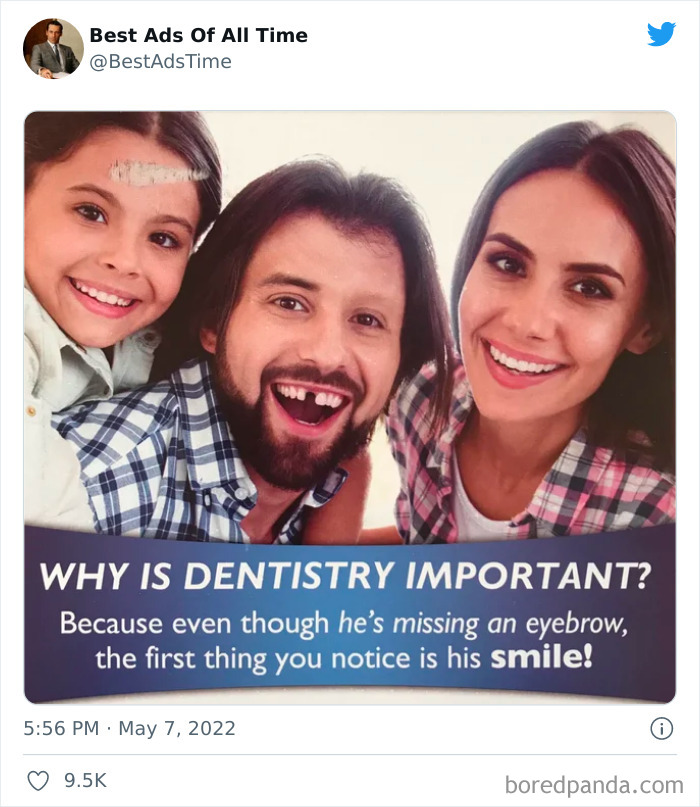
Image credits: BestAdsTime
According to Professor Johnson, grabbing attention is fundamentally about driving contrast, as our brains are geared to notice differences in our environments. The teams behind making ads shouldn't be just copying what everyone else is doing on a given platform if they want to stand out from the rest. "What this means is that the context of the ad is huge. The context is the background; and if the ad wants to be in the foreground, it must stand out against it," he explained to Bored Panda.
"The context is two things. First, it’s the features of the channel itself. If you’re running a paid ad campaign on IG for example, there are going to be lots of highly curated images of faces, landscapes, and brunches. So the last thing you’d want to do is feature a visual ad with any of these qualities. Instead, maybe imagery that is text-based or otherwise against the grain would be the way to go," he said.
"Secondly, it's about standing out against the competitive landscape—everyone else who’s running ads on the same target market. This speaks to the content itself, as well as the brand’s ability to distinguish itself, personality-wise from that of its competitors." What this means, according to the professor, is that high-quality and creative content doesn't actually always stand out on its own merit.
"If the content can’t grab attention and stop the consumer in their tracks, they won’t have the opportunity to appreciate the ad’s quality. This is especially true in the digital environment, where the first job of any piece of content is to stop the thumb. Only after this first step can the quality of the content shine through."
#2
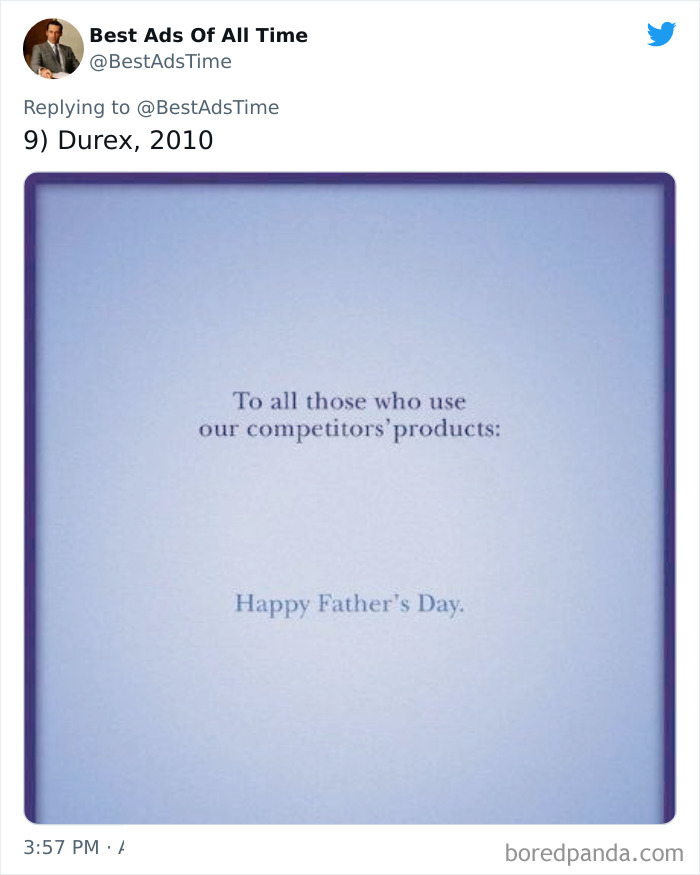
Image credits: BestAdsTime
#3
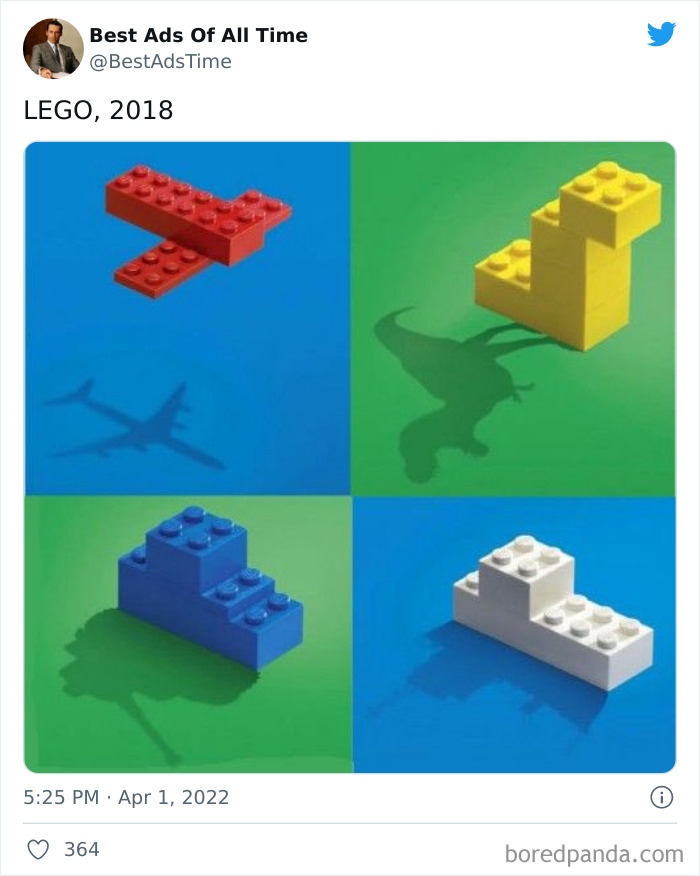
Image credits: BestAdsTime
It's not just contrast that human beings find attractive. Faces and text and other visual features intrinsically appeal to us. "These are special visual stimuli because they drive the brain’s automatic processing. You can’t look at a face without automatically processing its emotion, and you can’t look at a string of words without automatically processing their meaning. Because of this automaticity, these naturally drive attention and are often processed quickly within a visual scene," he told Bored Panda.
What the audience tends to notice first depends on a few things. For instance, if the words are legible enough, our brains access their mean first and foremost, "sometimes even before simple features like color." The more legible the font, the easier it is to read, and the more readily the message is absorbed which leads to a more positive reaction by the customer. This is what's known as the fluency effect.
"All things being equal, we (at least in 'The West') also have a general heuristic for looking at any visual scene, which is to start at the upper left and then move across to the left, before scanning the entire scene. This is largely owed to the fact that most Western languages are read left to right."
When it comes to customers actually making a purchase, there are a lot of different elements at play, and it's difficult to know what's the most vital without first knowing the context. The product itself, the brand, and the advertising can all be influential and play strong roles, but this depends on the industry and the consumer decision-making process.
#4
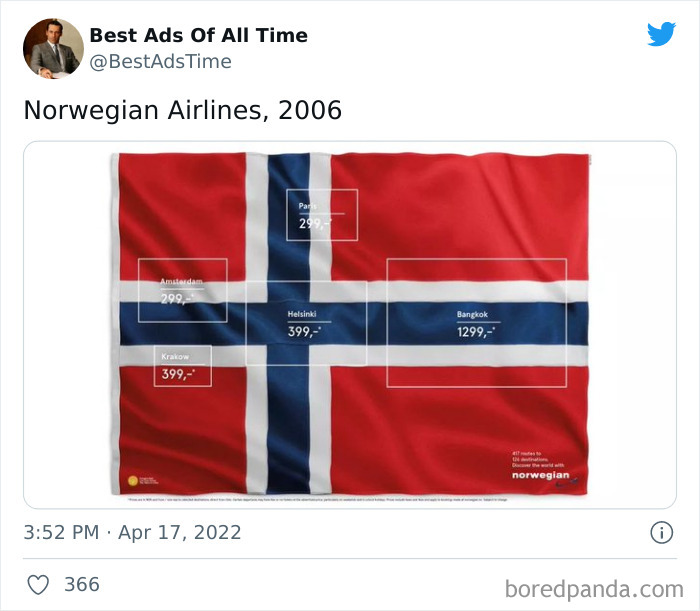
Image credits: BestAdsTime
#5
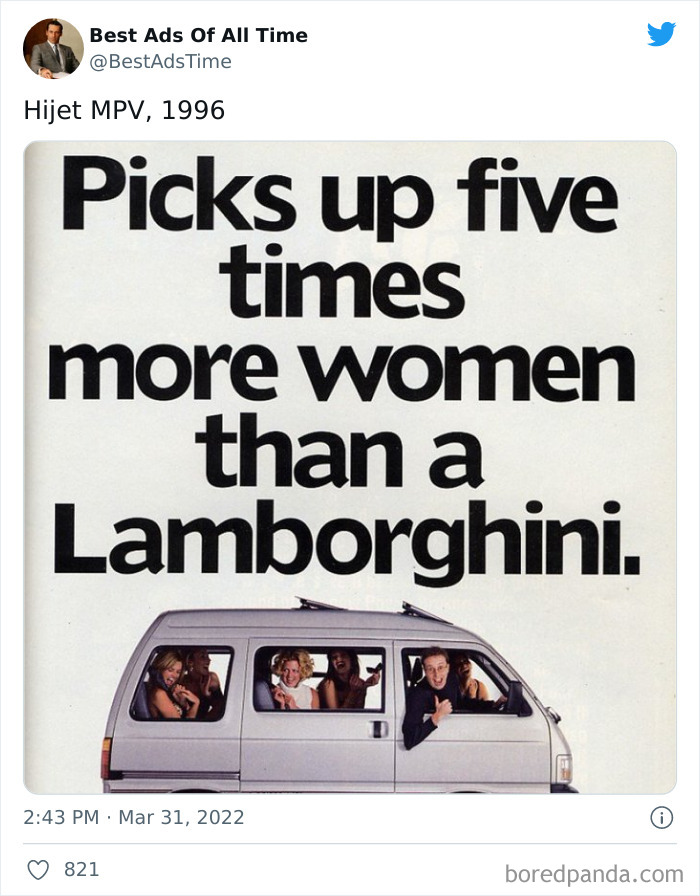
Image credits: BestAdsTime
#6
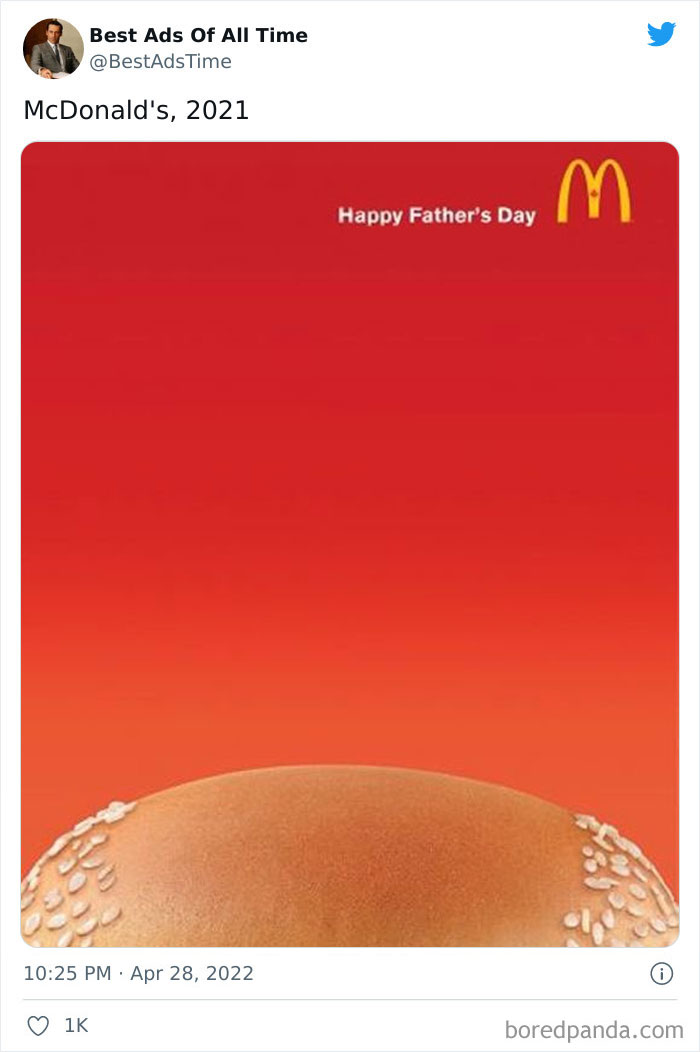
Image credits: BestAdsTime
"In some industries—such as the luxury industry—the brand is the primary differentiator, and the product and its advertising are much less important. But in other industries, such as expensive technology, or automobiles, the utility of the product is extremely important, as is the brand reputation. Generally speaking, the more expensive the product is, the more important the features of the products are going to be. When it’s an expensive purchase, people are generally much less willing to go out on a whim simply because they like a brand or an ad," Professor Johnson said.
"And more still, advertisements can play a big role in driving purchases for certain types of products in certain contexts. Ads are particularly important when there is a very quick turnaround between seeing the ad and having the opportunity to make a purchase. This is very common in digital media. For example, if an ad for some new shoes hits you on social media, along with the opportunity to buy those shoes within just a few clicks, the ad itself can make a massive difference," he said.
Professor Johnson's book, 'Branding that Means Business' (Economist Books, Fall 2022), comes out on October 25, this year.
#7
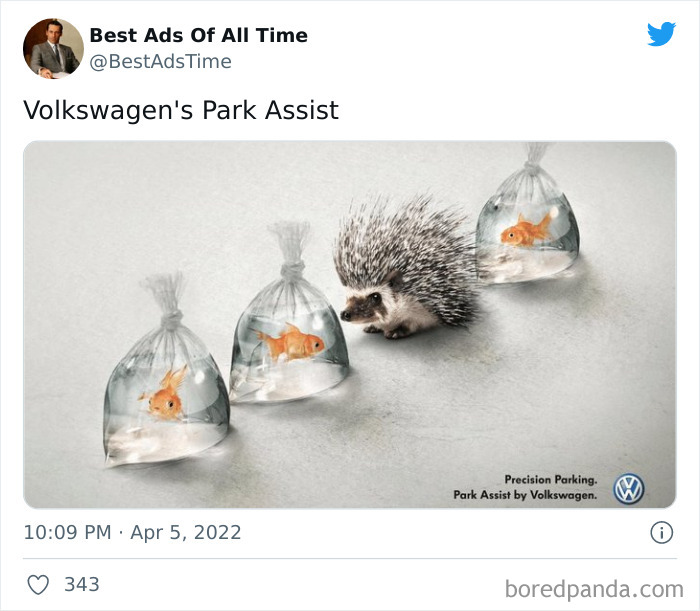
Image credits: BestAdsTime
#8
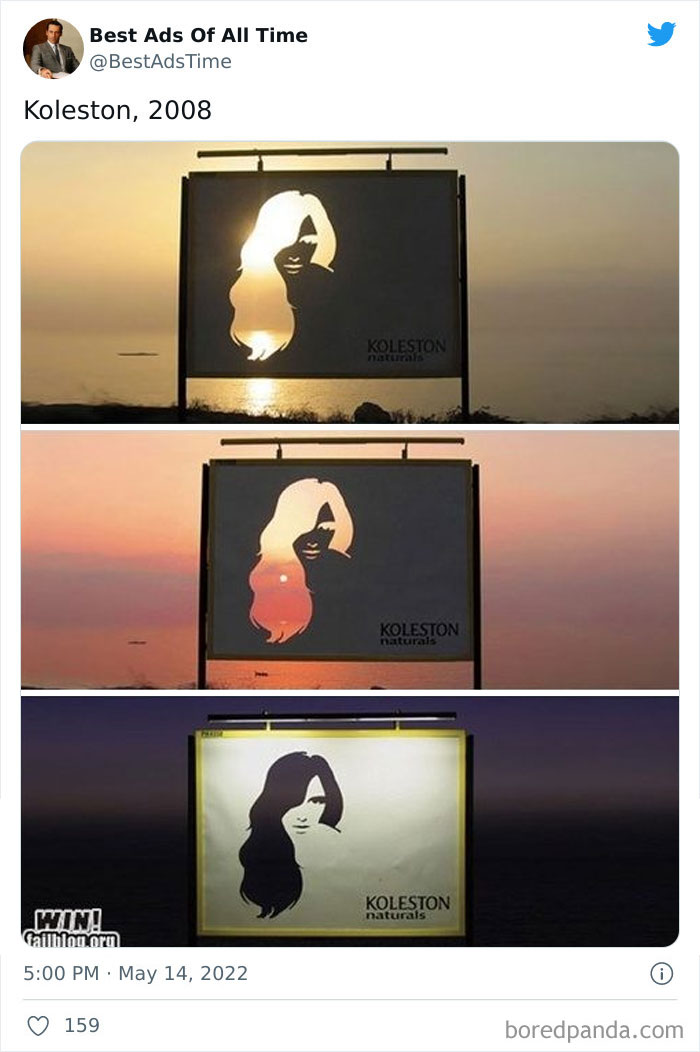
Image credits: BestAdsTime
#9
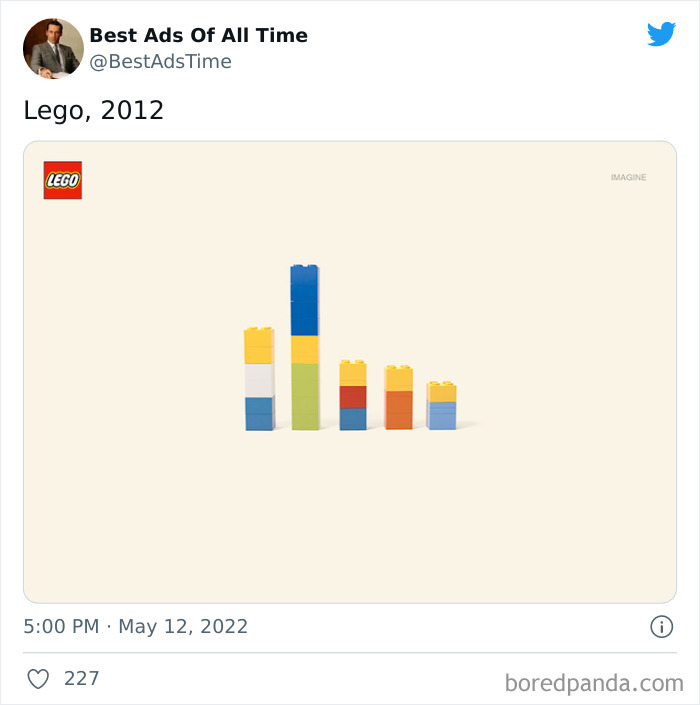
Image credits: BestAdsTime
Spending on ads is huge, globally. The advertising market is expected to surpass a whopping 1 trillion dollars by 2026 if current trends continue.
Generally speaking, ads are all about convincing the audience to buy a product by condensing the greatest amount of information into the smallest amount of visual real estate. You take a massive message about a product or a service and then you chip away at what’s unnecessary. You do some creative alchemy to condense the message. You get to the core idea. And then you present it in the most appealing way through words and visuals and anything else that’ll have people’s senses roaring.
Personally, I’m a huge fan of humor. So marketing campaigns that genuinely gets me to laugh will have my respect (though not necessarily my cash). I’m also a major supporter of billboards that use the space creatively. Particularly those that use the changing light throughout the day or a completely out-of-the-box approach to craft an impactful message. For me, those are game-changers. And I can only wish that everyone was as imaginative and bold.
#10
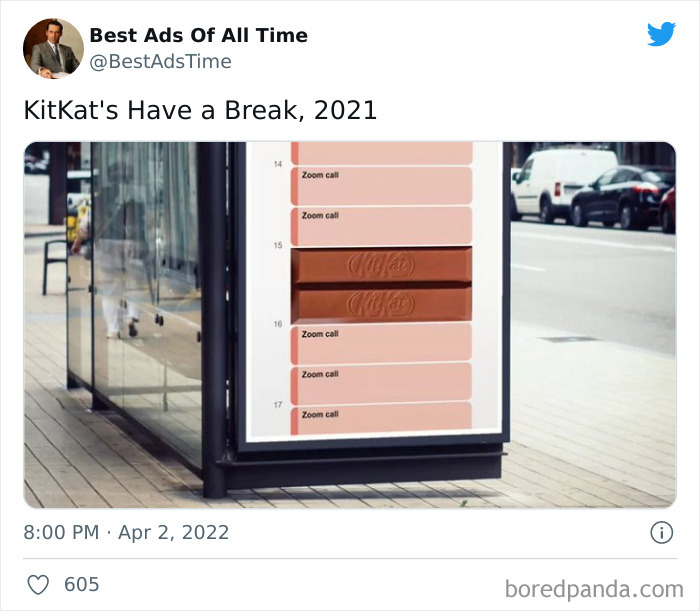
Image credits: BestAdsTime
#11
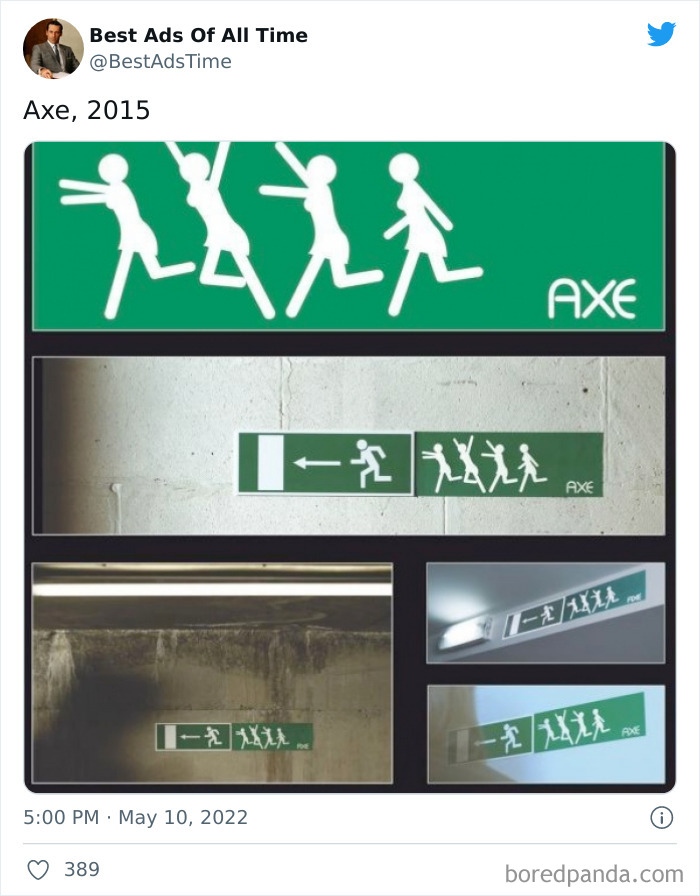
Image credits: BestAdsTime
#12
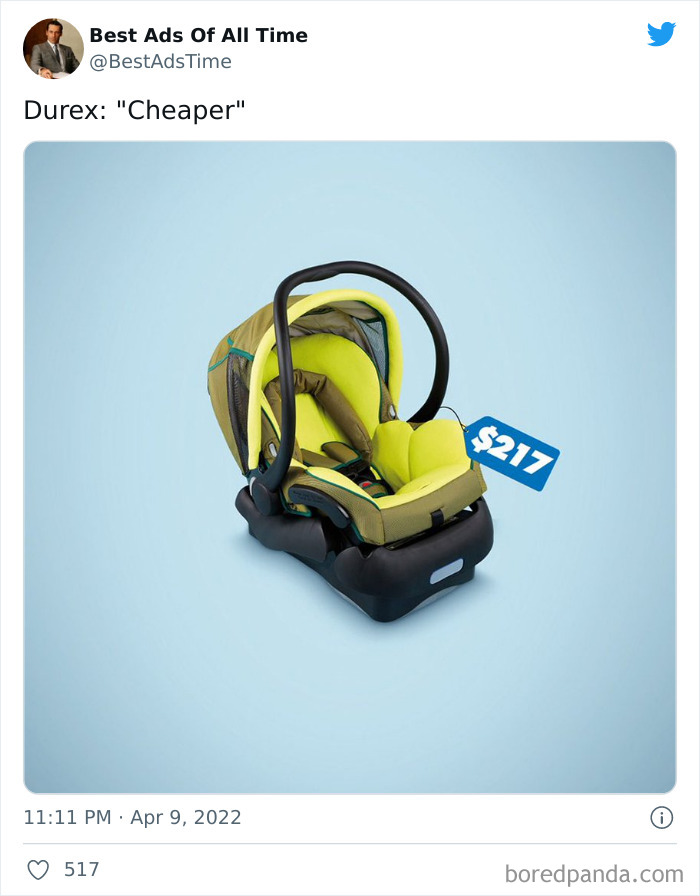
Image credits: BestAdsTime
Excessive information is anathema to good marketing. You don’t want to overload your potential customer or client with stuff that either a) really doesn’t matter; b) they could find out later on, after you’ve hooked them with your artistic and/or witty approach.
Though it pains me as a writer, there’s no getting around the fact that it’s the photos and headlines that grab everyone’s attention the most. You really can’t expect the vast majority of people to have the time and patience to read through every teeny-tiny thing you write. Everyone’s busy. So you’ve got to make the biggest splash that you can before they scroll elsewhere.
#13
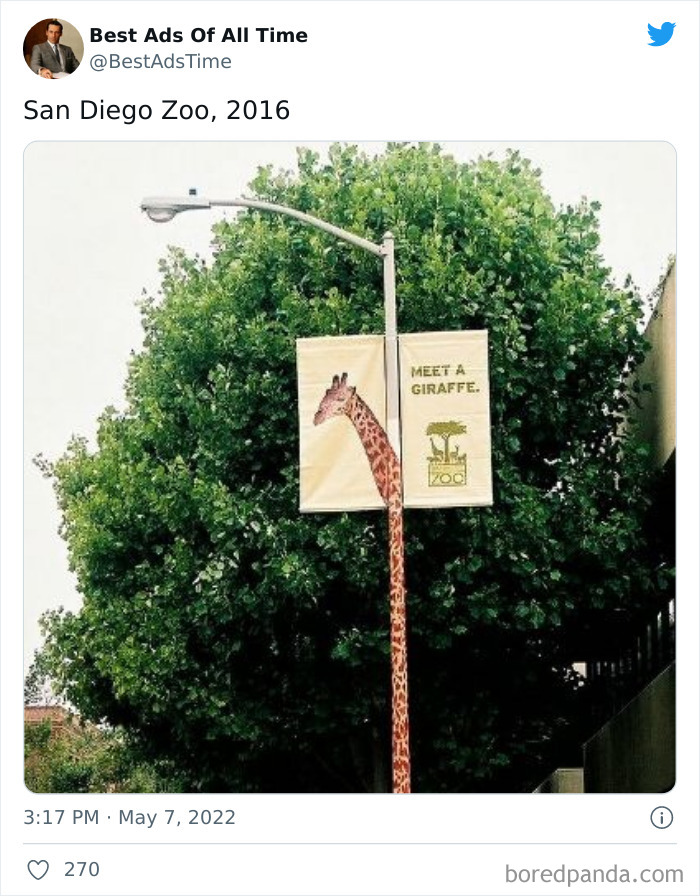
Image credits: BestAdsTime
#14
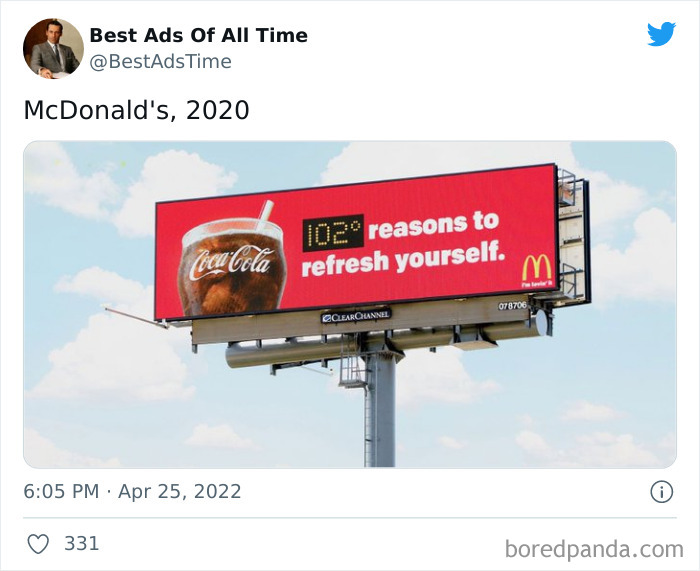
Image credits: BestAdsTime
#15
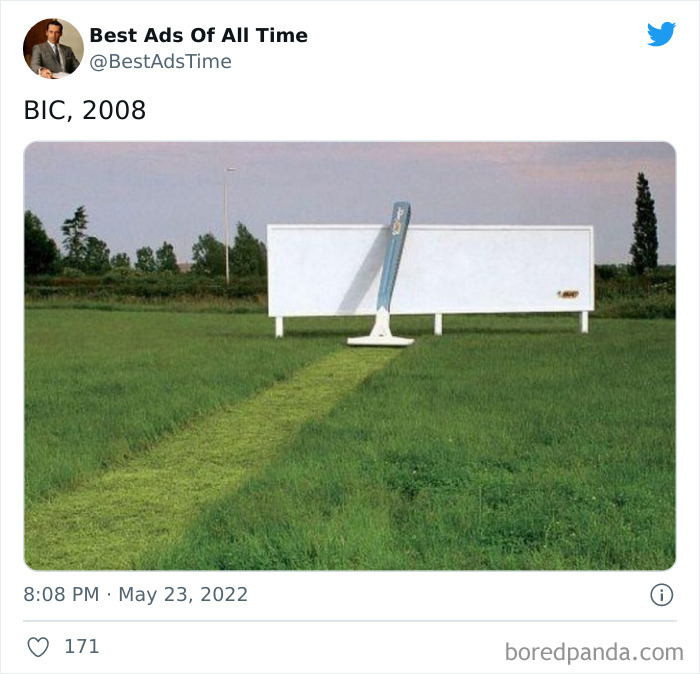
Image credits: BestAdsTime
At its core, marketing isn’t far off from people’s innate desire for fame, love, and attention. We all want to be noticed, respected, and appreciated. We might not be selling a product, but we’re all ‘selling’ a brand—us. Whether we mean to be or not, we’re all in competition with each other.
Recently, Bored Panda spoke to comedy and media expert Ariane Sherine, from the UK, about online fame. "It’s a human need to want approval from others, and there are far more people available to provide approval online than in real life," she explained why folks want to be noticed on social media.
"Online validation is also there forever for everyone to witness. It’s a rare person who is completely impervious to the thrall of millions of strangers liking what they do—it’s exciting and boosts your self-esteem,” she said.
#16

Image credits: BestAdsTime
#17
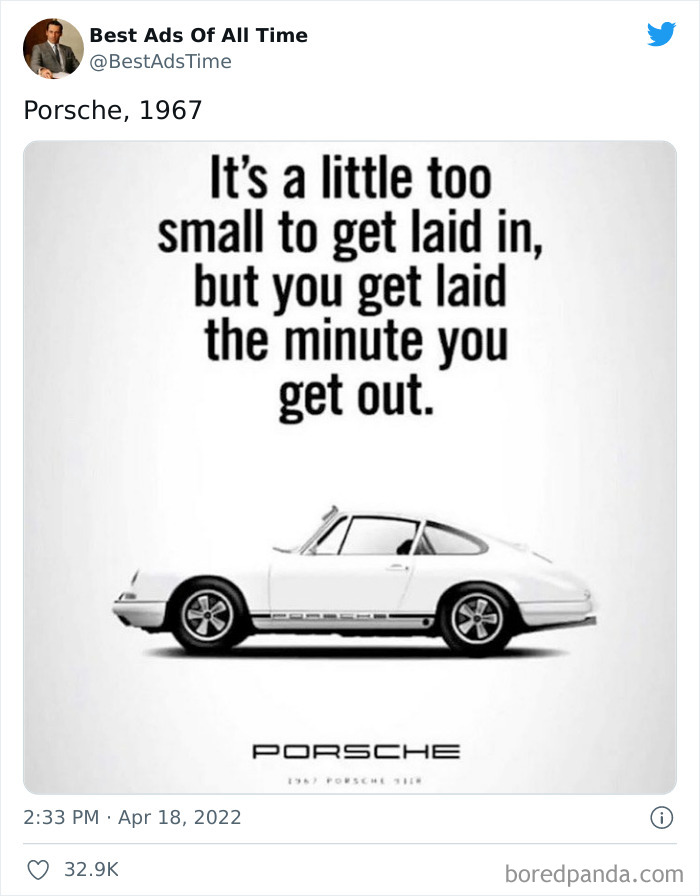
Image credits: BestAdsTime
#18
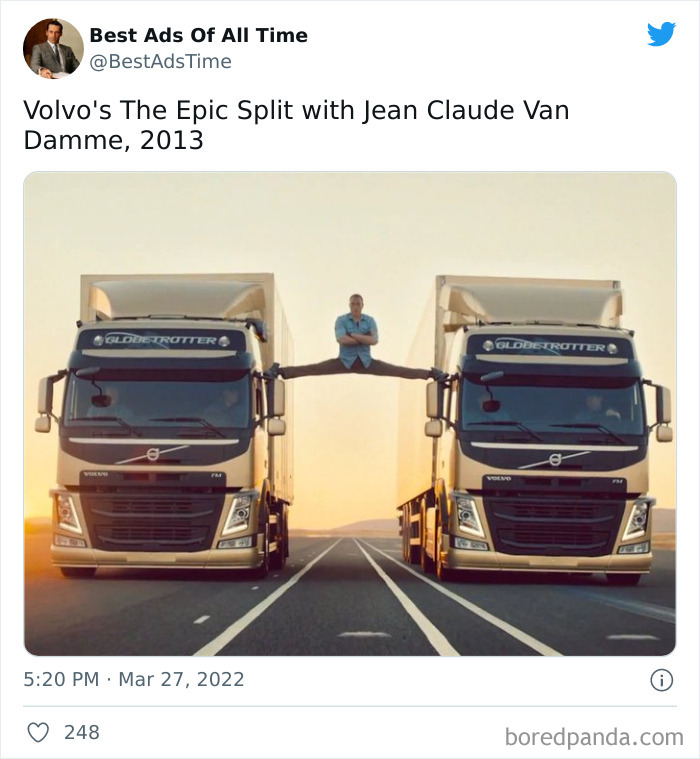
Image credits: BestAdsTime
"If you’re an exceptional creator you’ll still stand out. Of course, the more followers you have, the more chance there is that people are going to see, like, and share your content, but that doesn’t mean it’s impossible to break through,” Ariane explained to us the dynamics of getting noticed online.
#19
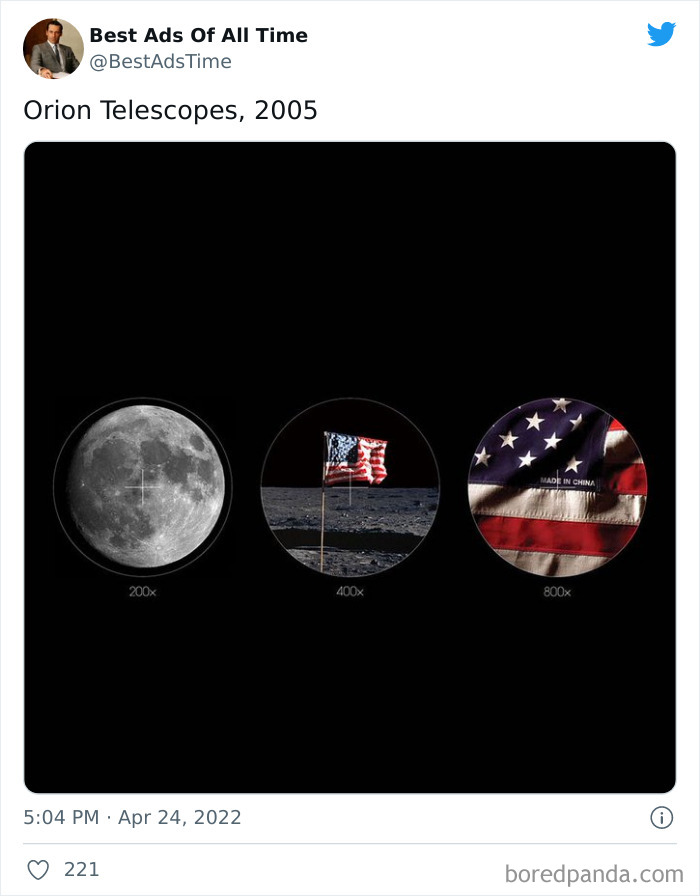
Image credits: BestAdsTime
#20
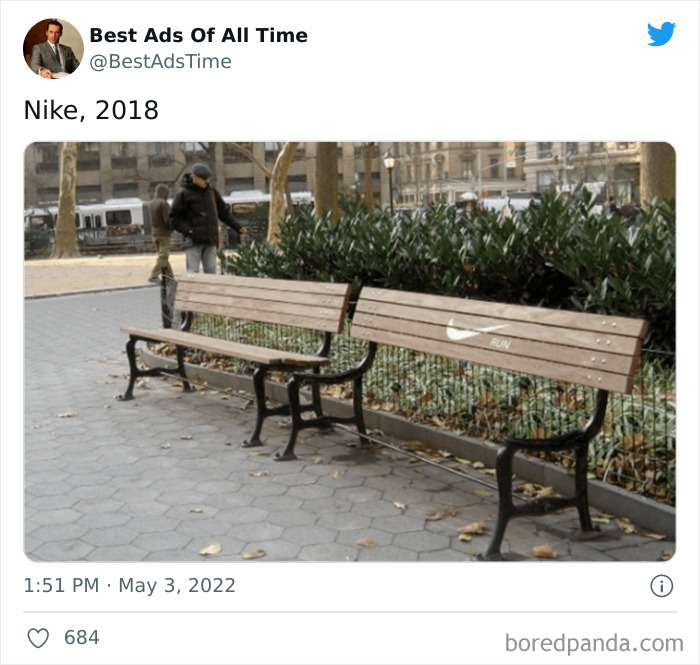
Image credits: BestAdsTime
#21
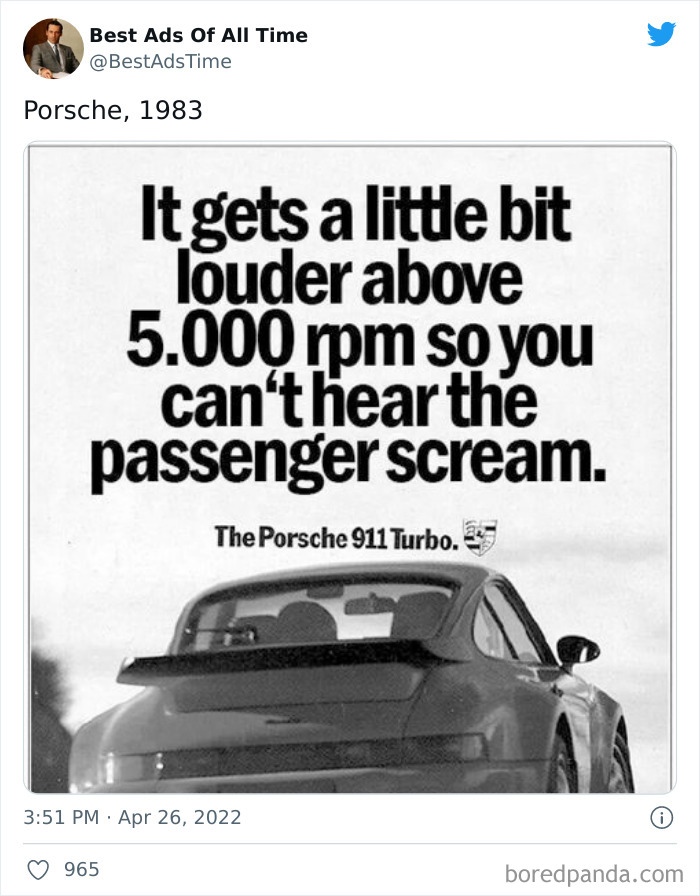
Image credits: BestAdsTime
She stressed that the two things that help someone stand out online are creating quality content without compromising your standards, and consistently posting every single day if you can. The same lessons can be applied to marketing. Stay on your audience’s radar and give them quality stuff, not cheap attempts to get them to part with their hard-earned cash.
#22
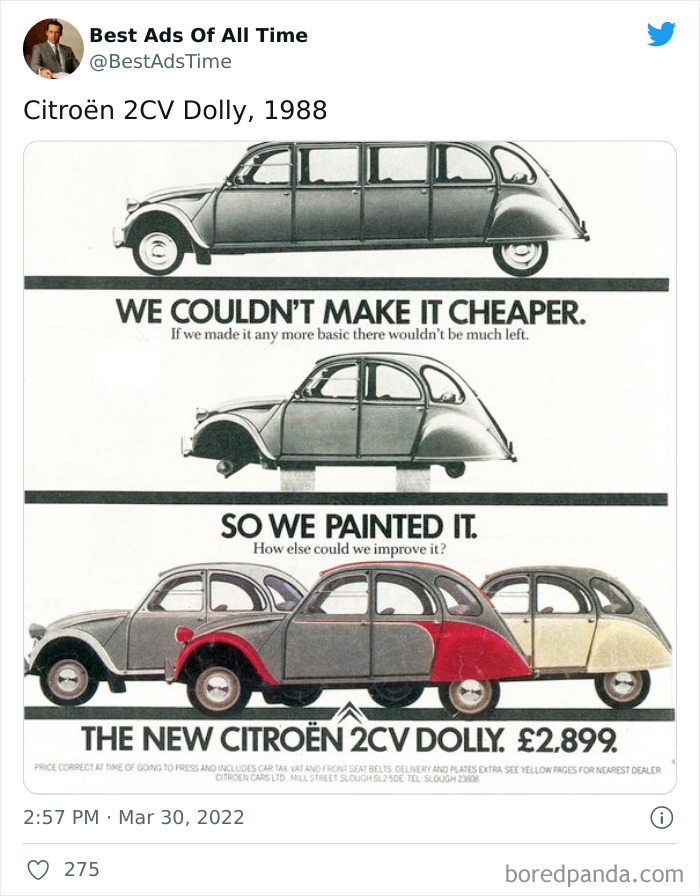
Image credits: BestAdsTime
#23
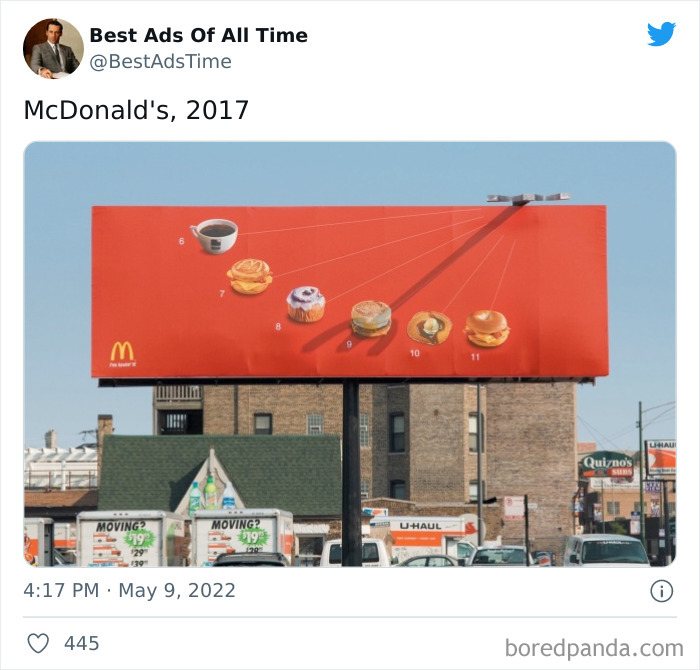
Image credits: BestAdsTime
#24
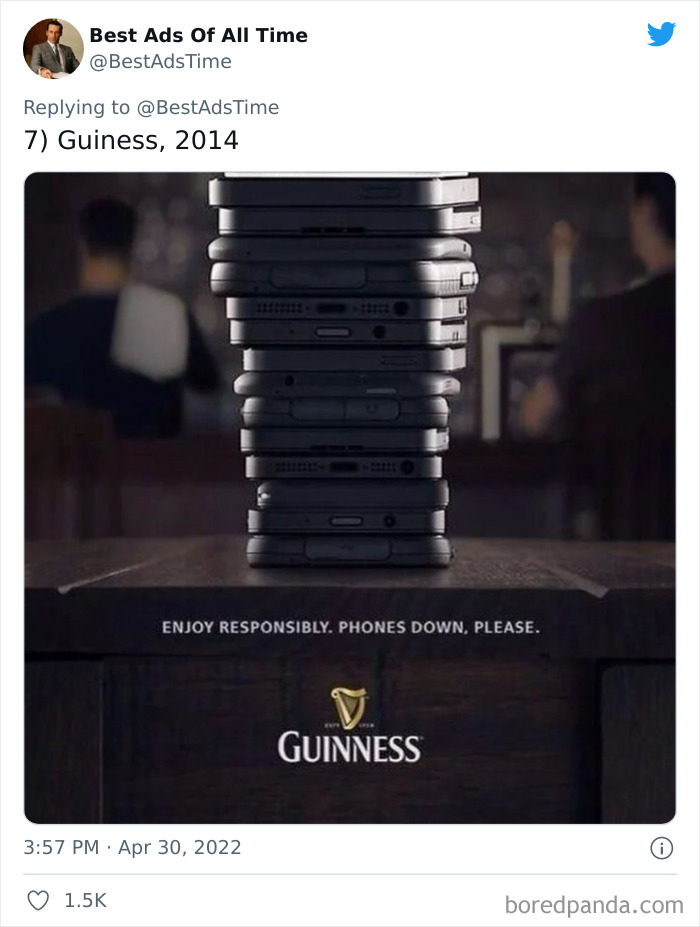
Image credits: BestAdsTime
Media expert Mike Sington, from LA, believes that the desire for online fame is directly linked to one’s ego. “Trying to go viral and get recognition online is really mostly about ego. Everyone wants recognition, everyone wants their fifteen minutes of fame, and getting it online is a relatively easy way to do it, all from the comfort of your home," he said it’s all about respect, reputation, and approval.
#25
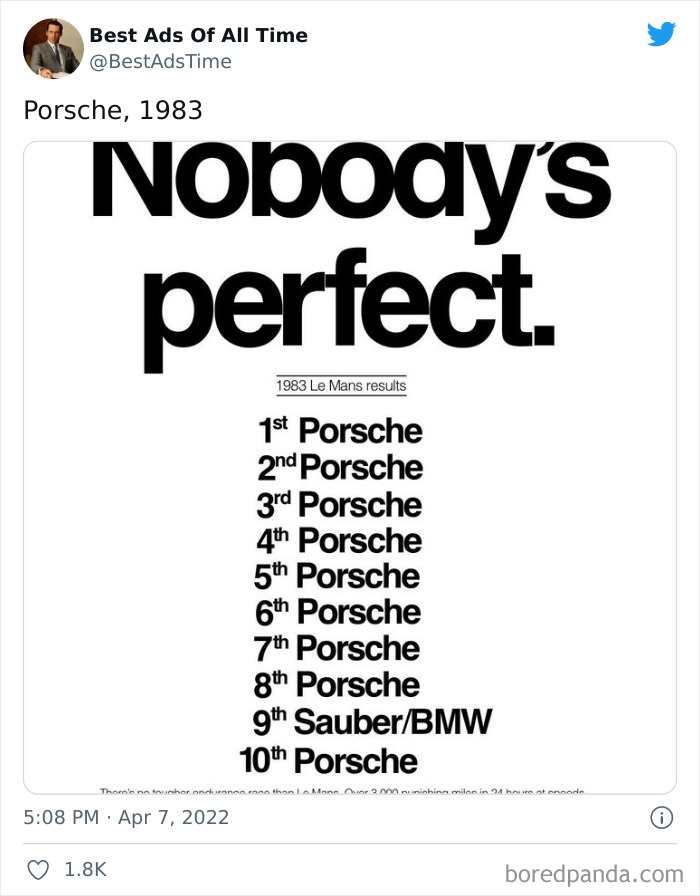
Image credits: BestAdsTime
#26
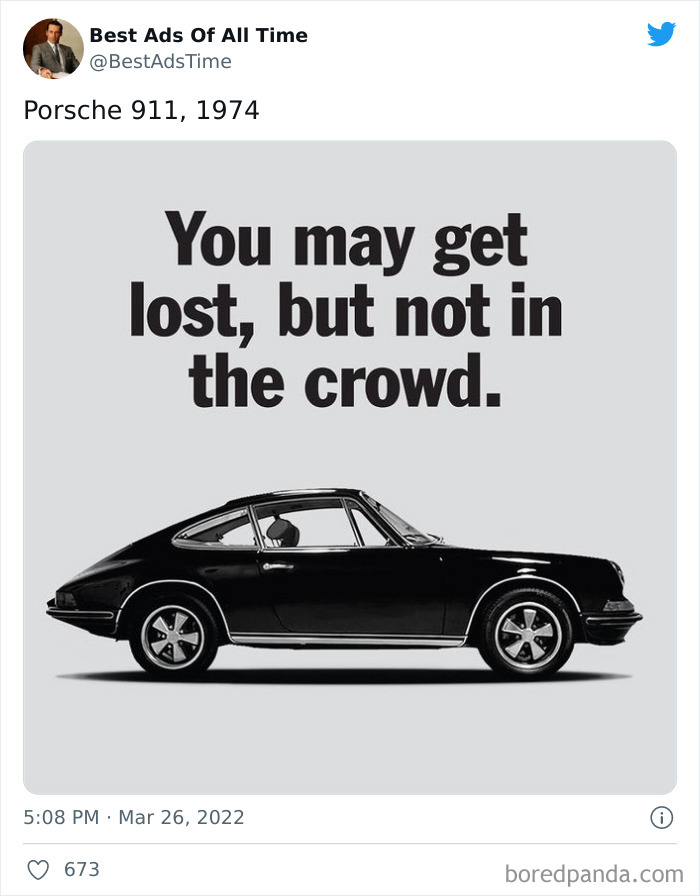
Image credits: BestAdsTime
#27
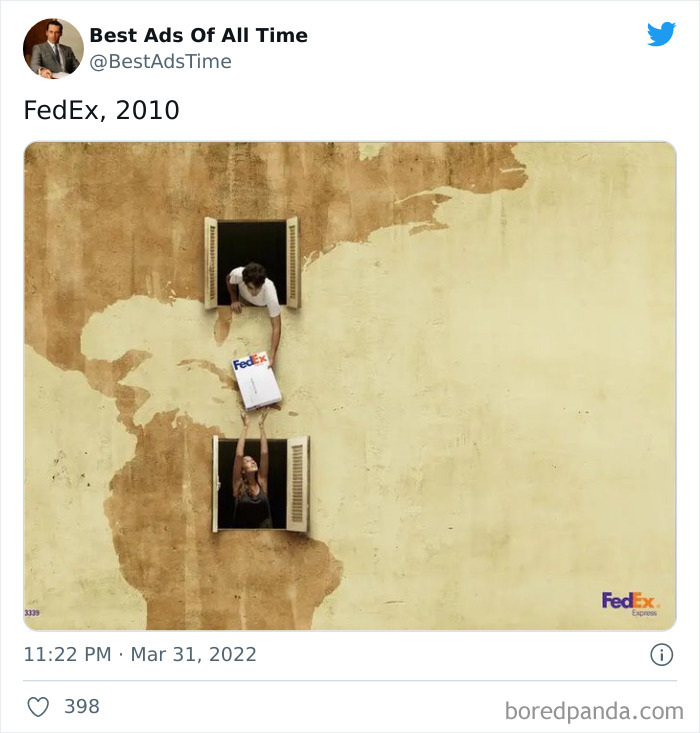
Image credits: BestAdsTime
"Anyone can create content, but you’re competing against literally tens of millions of users to create memorable content. It takes a lot of work, and can easily become what feels like a second job," Mike was candid that standing out online takes a lot of dedicated work and energy.
#28
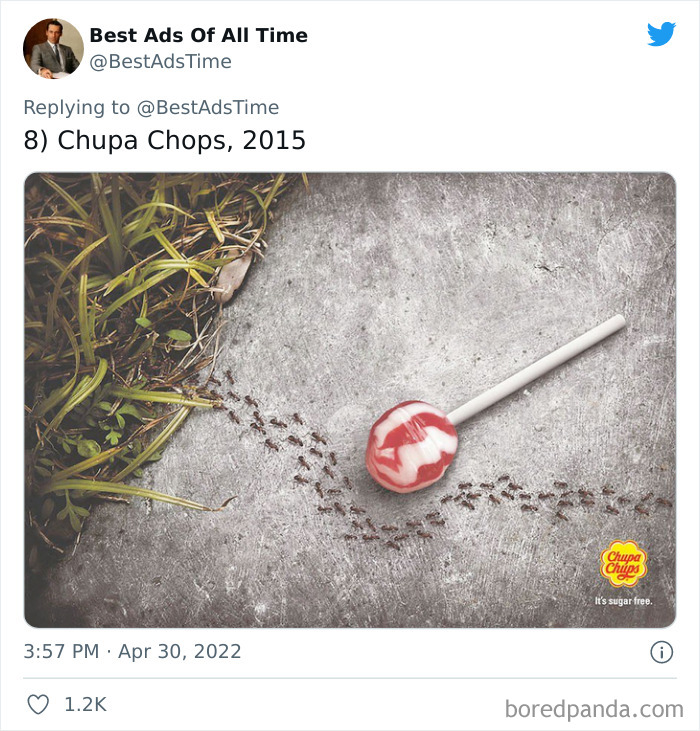
Image credits: BestAdsTime
#29
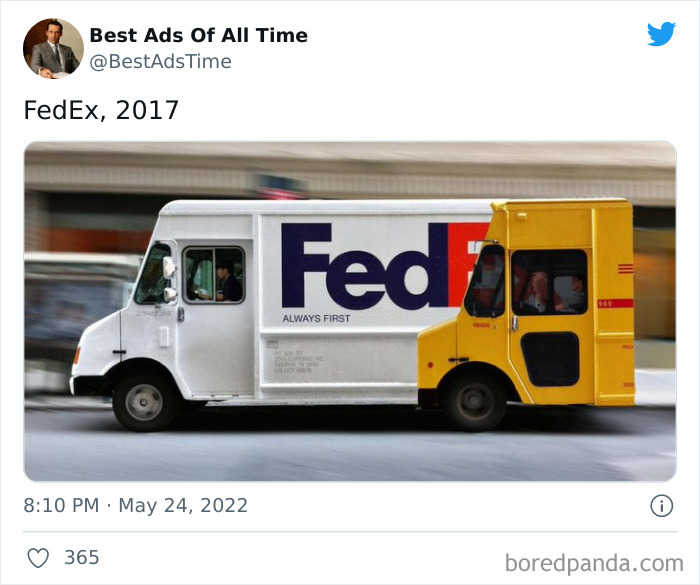
Image credits: BestAdsTime
#30
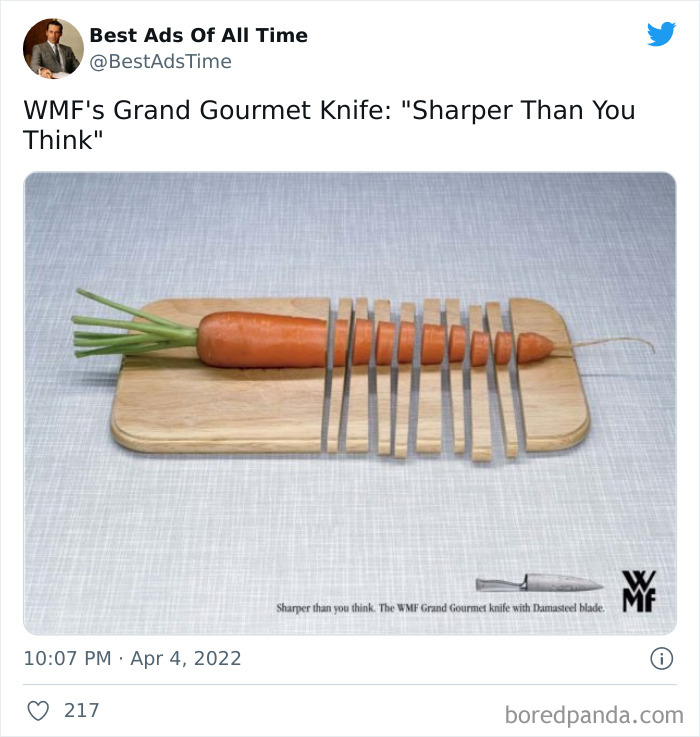
Image credits: BestAdsTime
"To stand out online, what you post has to be carefully crafted. Quality content stands out online. Think it through carefully, ask yourself, 'Is what I’m posting memorable, inspirational, informative, funny, will it make people think, or feel good, or start a conversation?' If it doesn’t meet any of those benchmarks, it’s probably not going to stand out and go viral. There’s a lot of junk out there, it takes effort to rise above it," he told Bored Panda.
#31
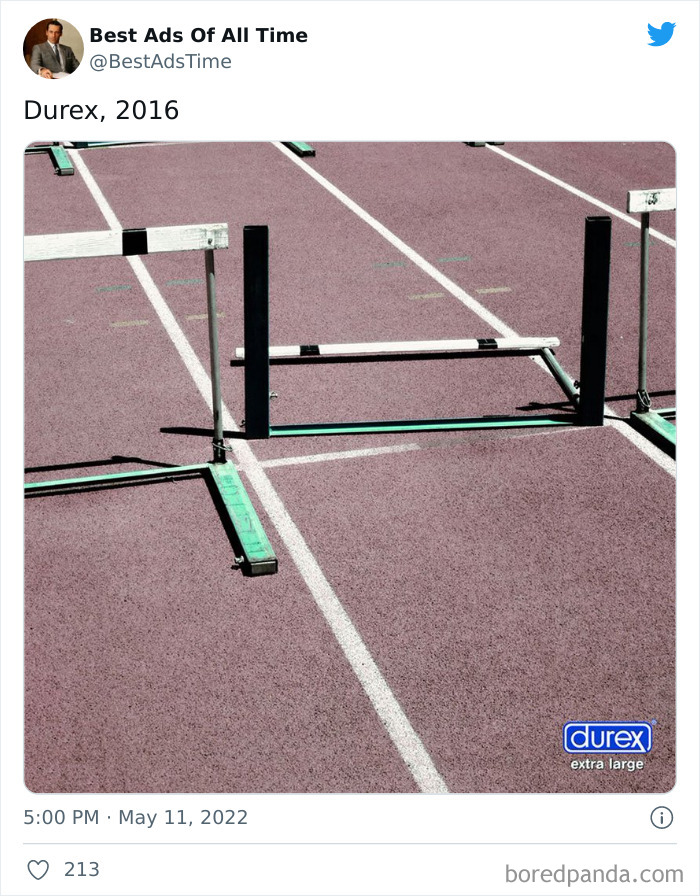
Image credits: BestAdsTime
#32
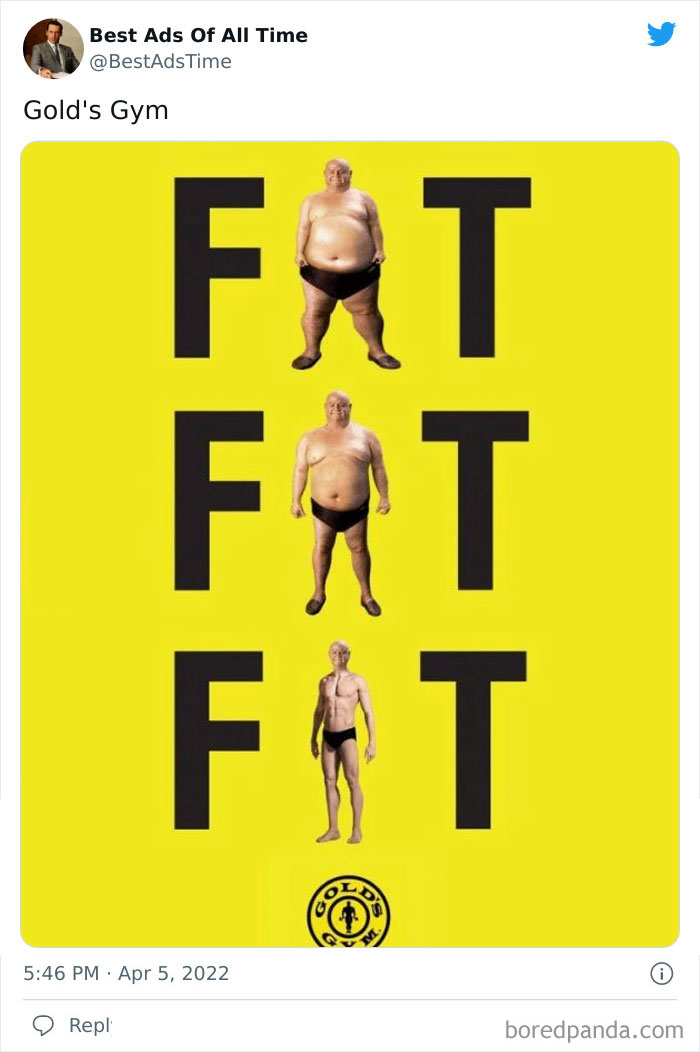
Image credits: BestAdsTime
#33
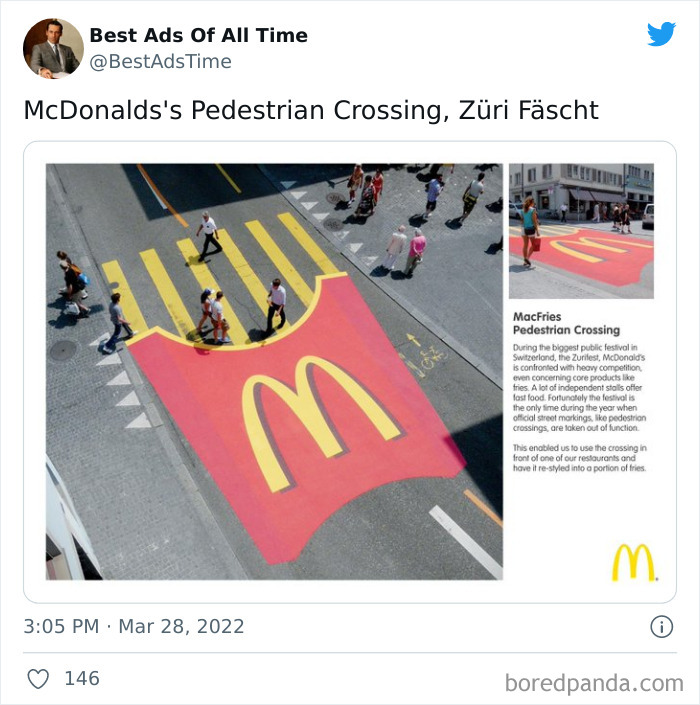
Image credits: BestAdsTime
#34
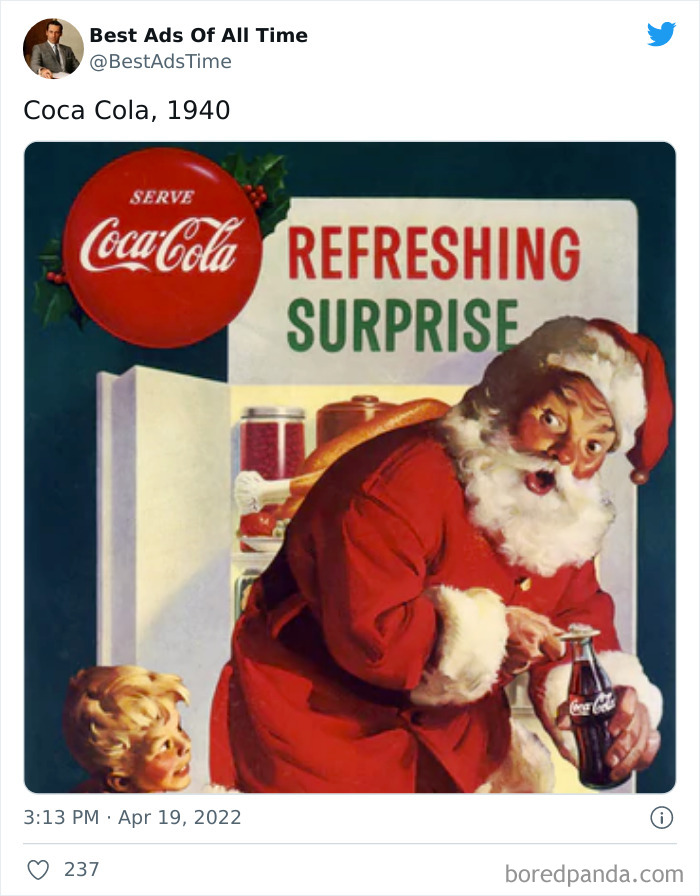
Image credits: BestAdsTime
#35
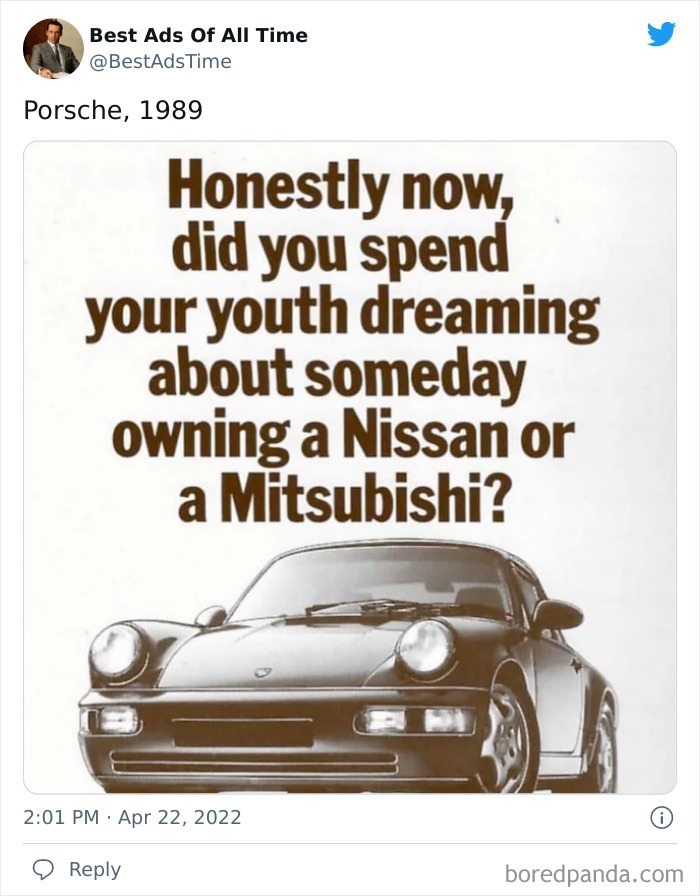
Image credits: BestAdsTime
#36
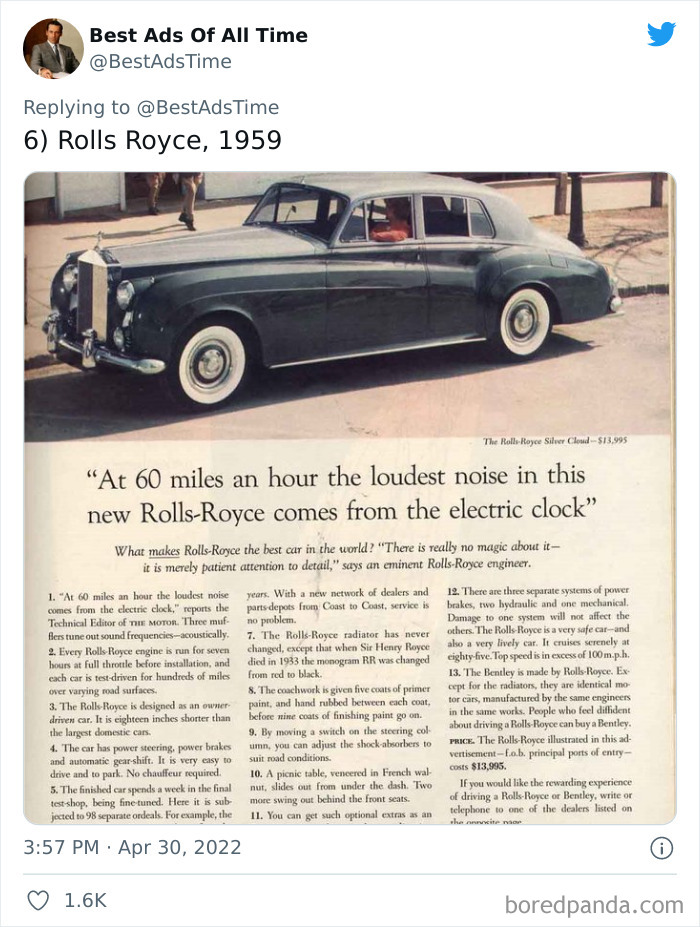
Image credits: BestAdsTime
#37
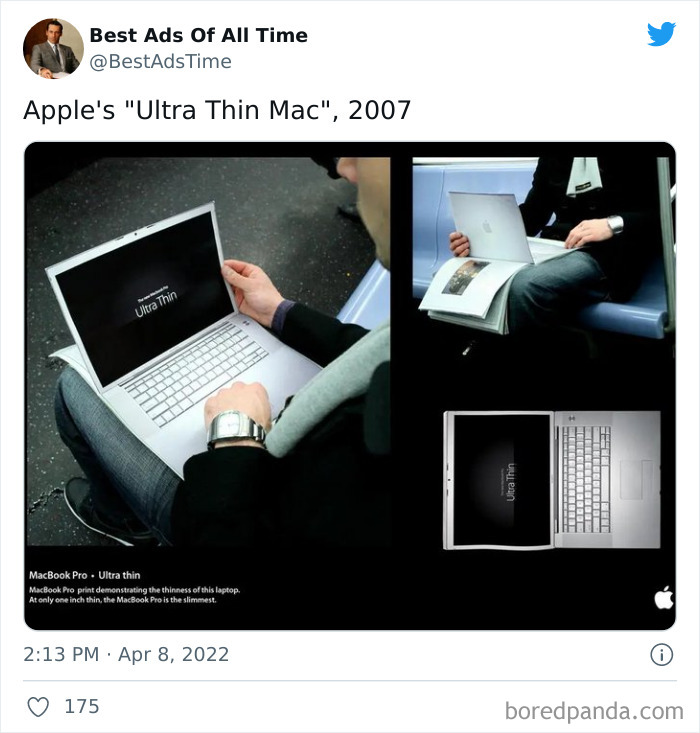
Image credits: BestAdsTime
#38
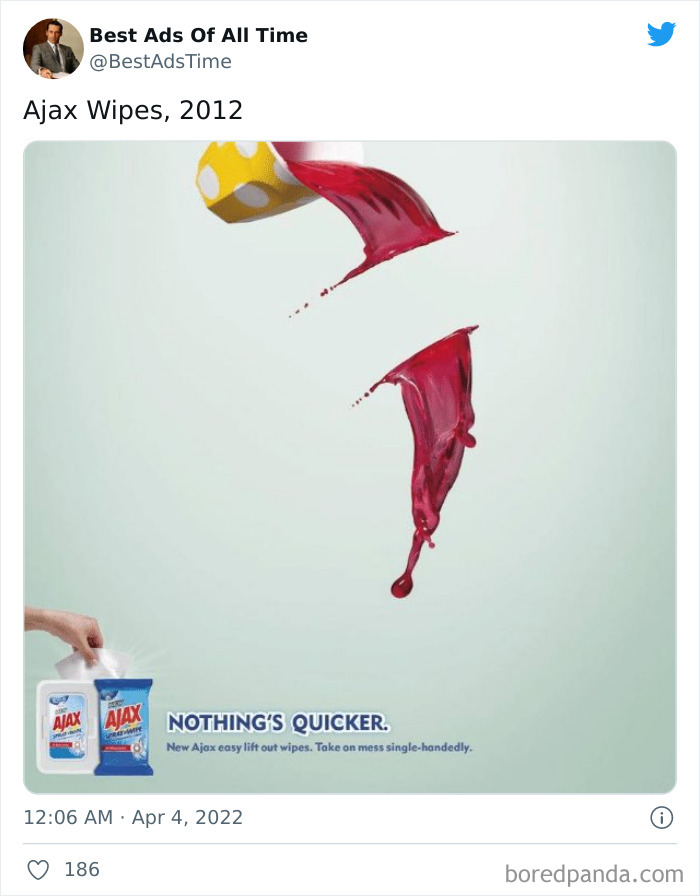
Image credits: BestAdsTime
#39
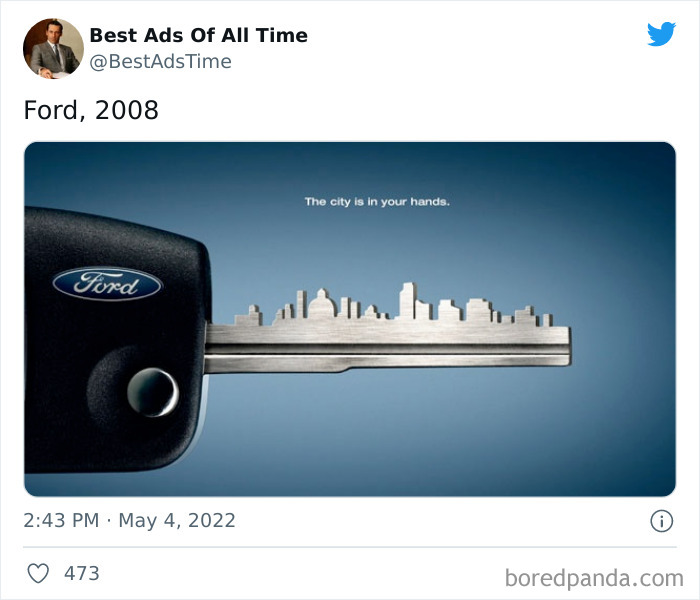
Image credits: BestAdsTime
#40
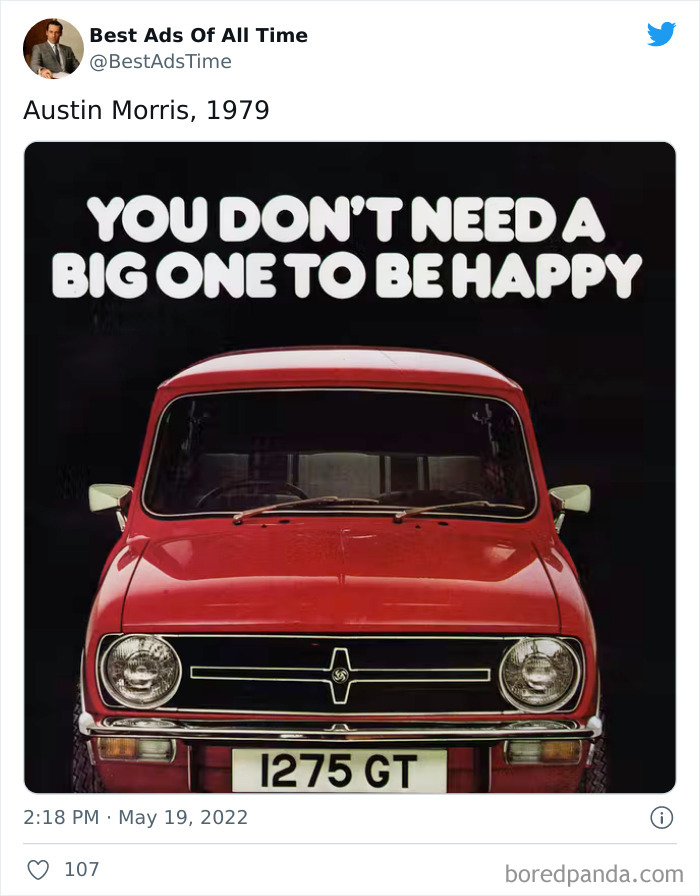
Image credits: BestAdsTime
#41
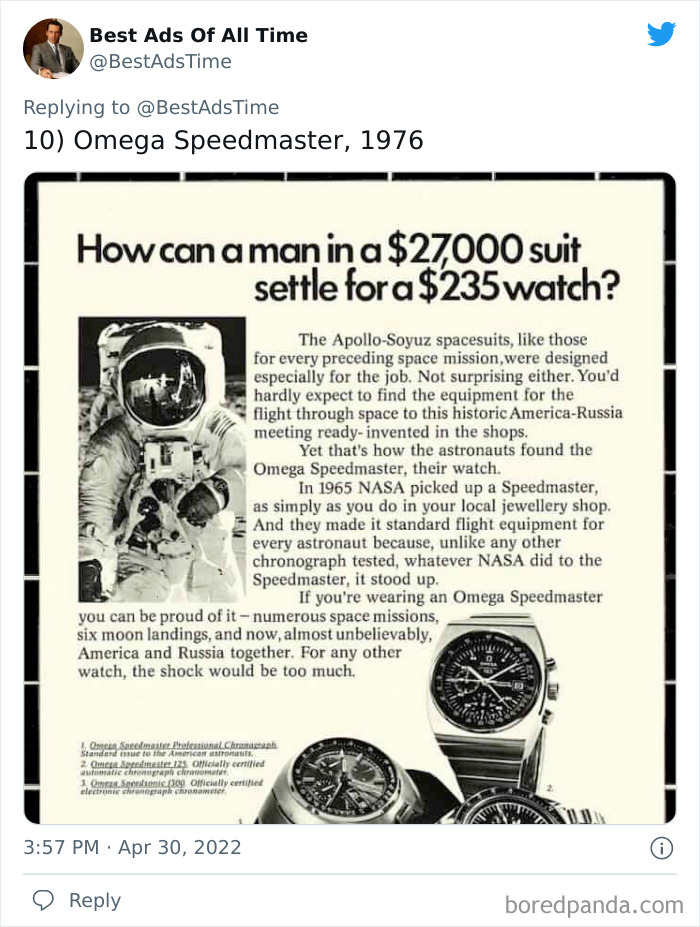
Image credits: BestAdsTime
#42
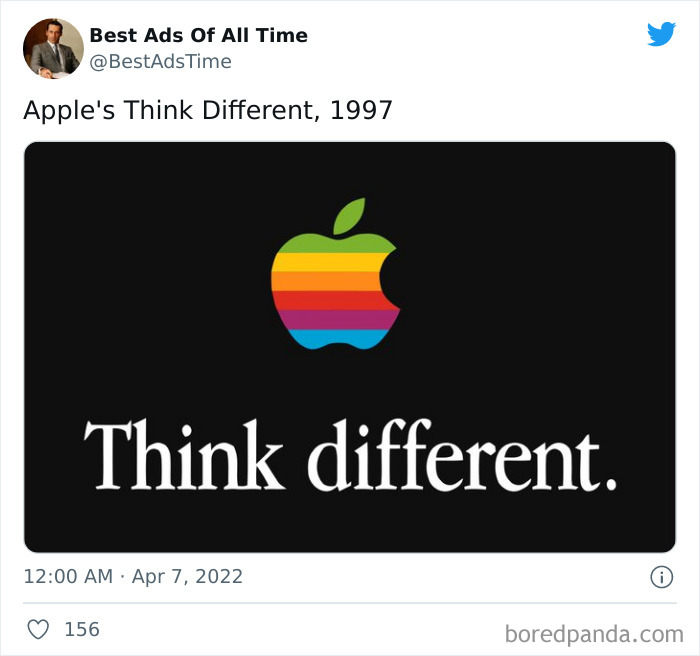
Image credits: BestAdsTime
#43
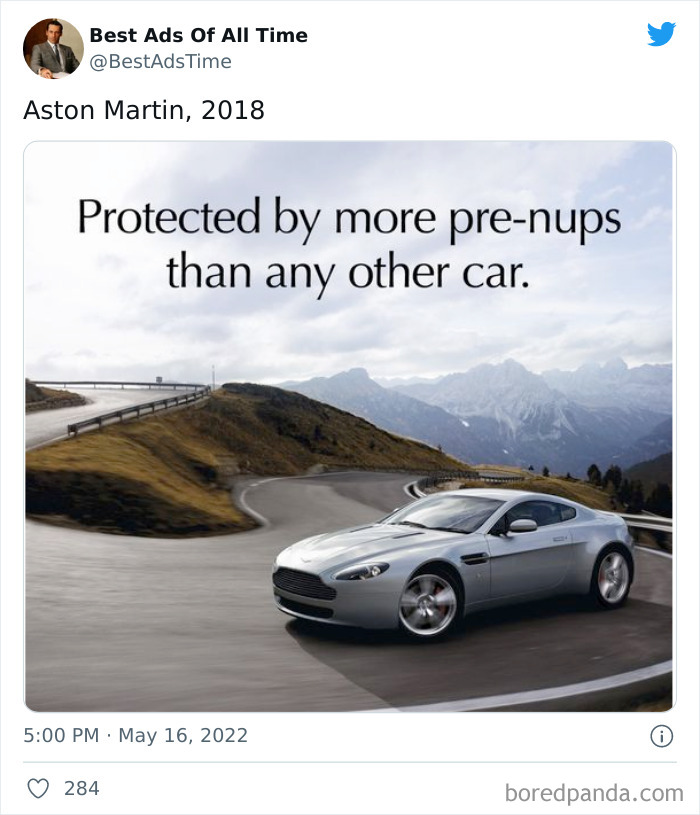
Image credits: BestAdsTime
#44
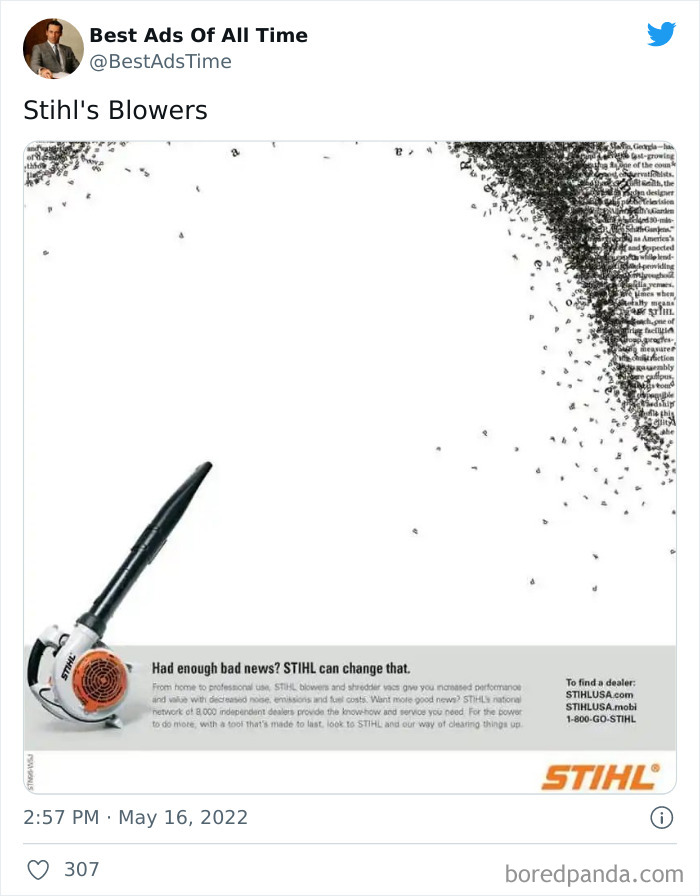
Image credits: BestAdsTime
#45
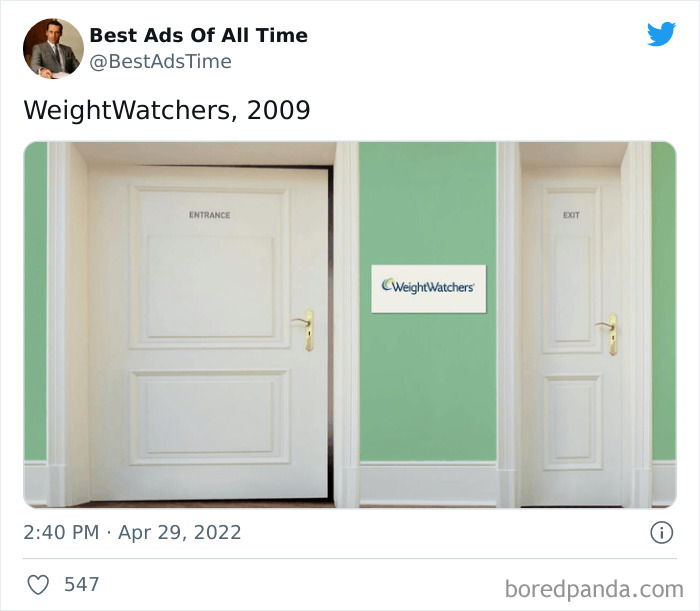
Image credits: BestAdsTime
#46
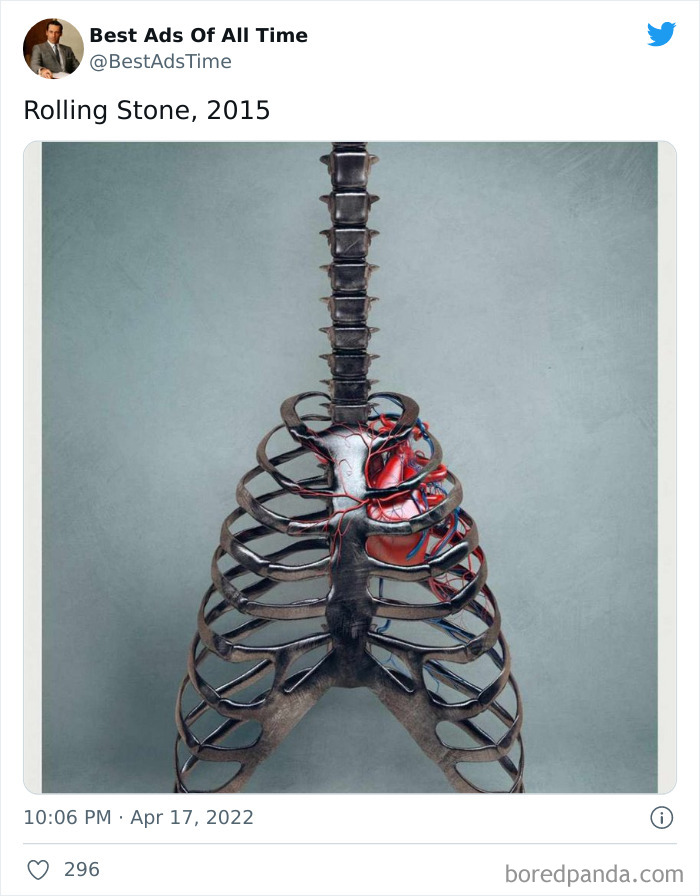
Image credits: BestAdsTime
#47
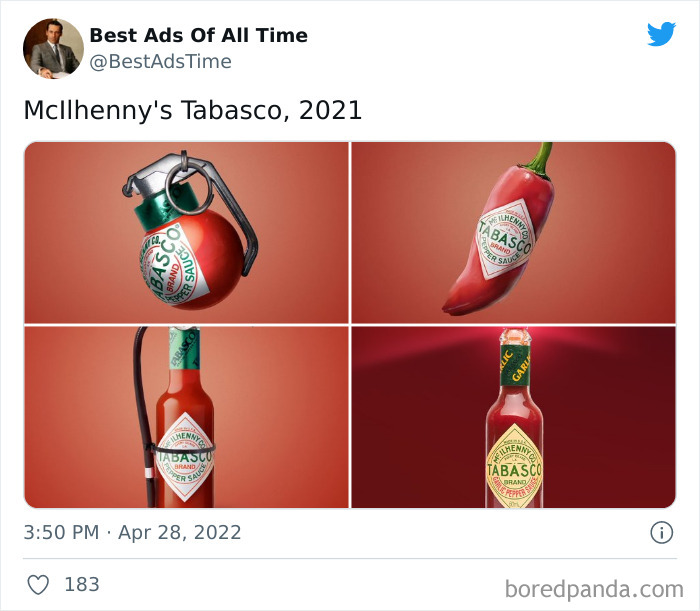
Image credits: BestAdsTime
#48
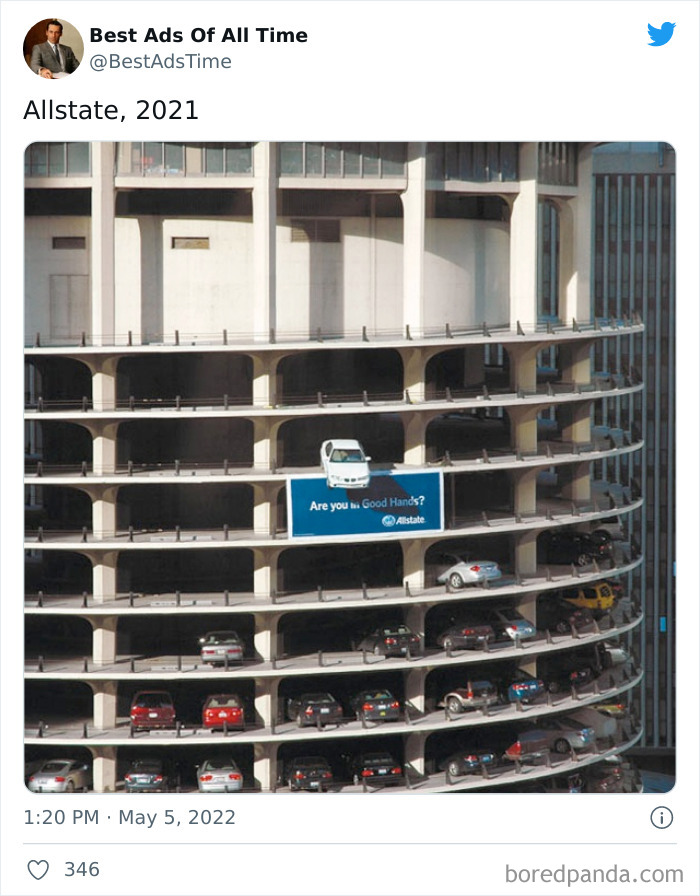
Image credits: BestAdsTime
#49
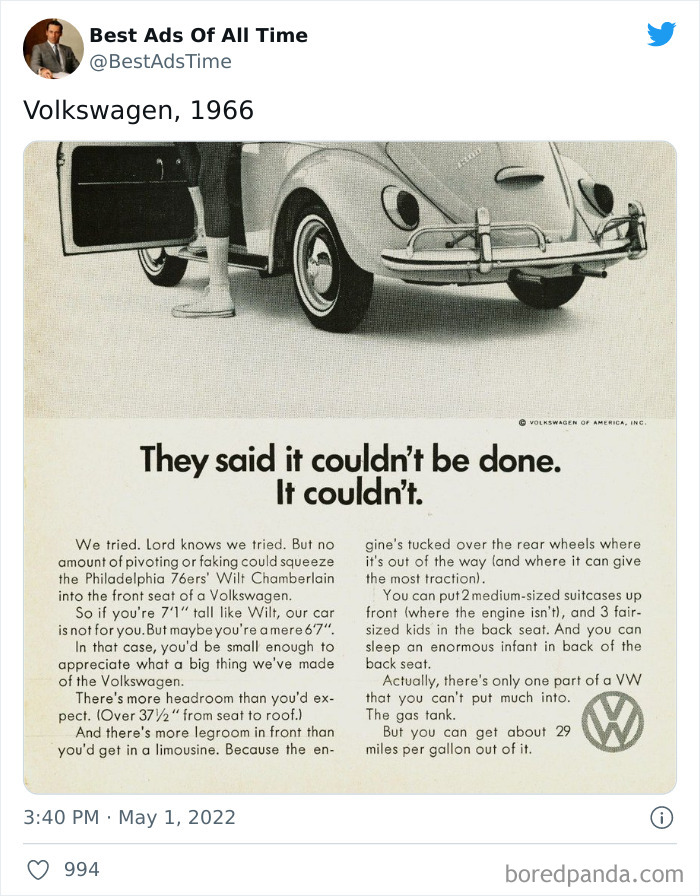
Image credits: BestAdsTime
#50
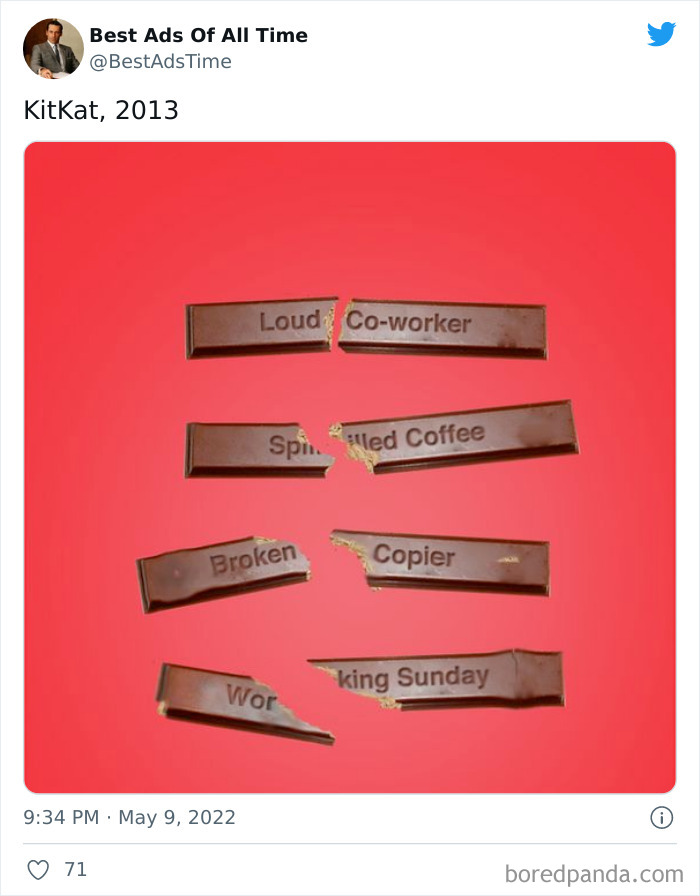
Image credits: BestAdsTime
#51
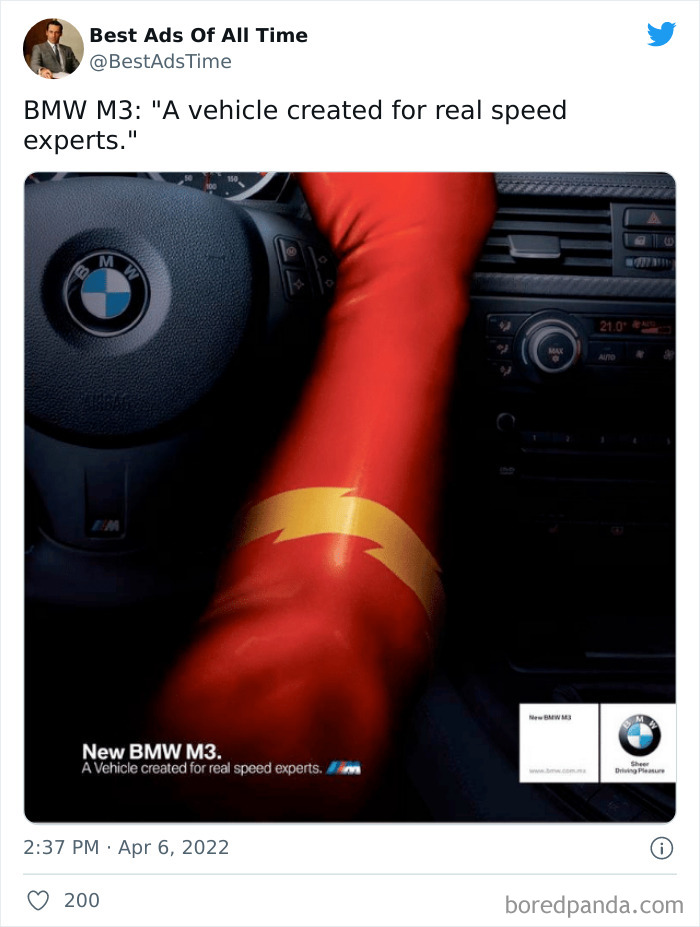
Image credits: BestAdsTime
#52
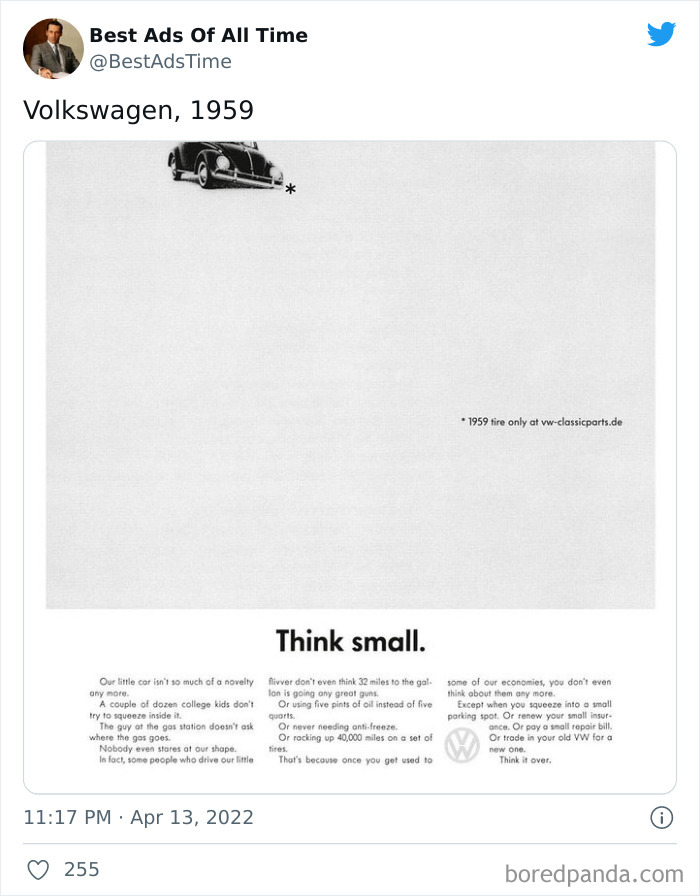
Image credits: BestAdsTime
#53
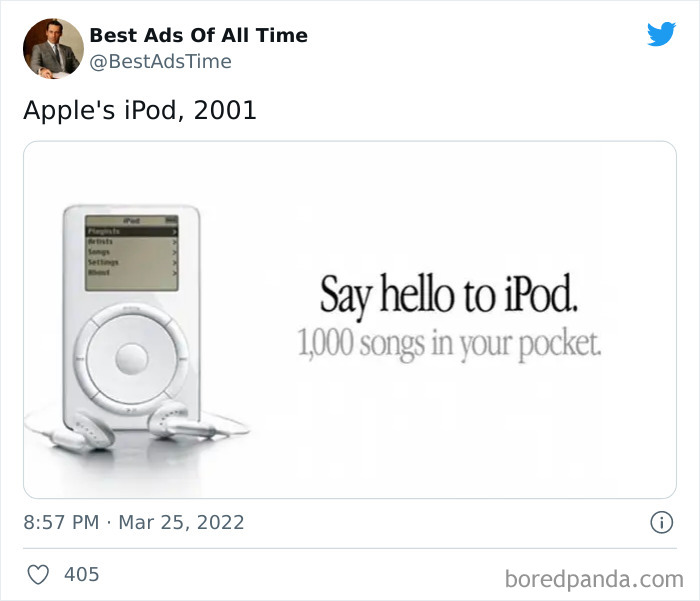
Image credits: BestAdsTime
#54
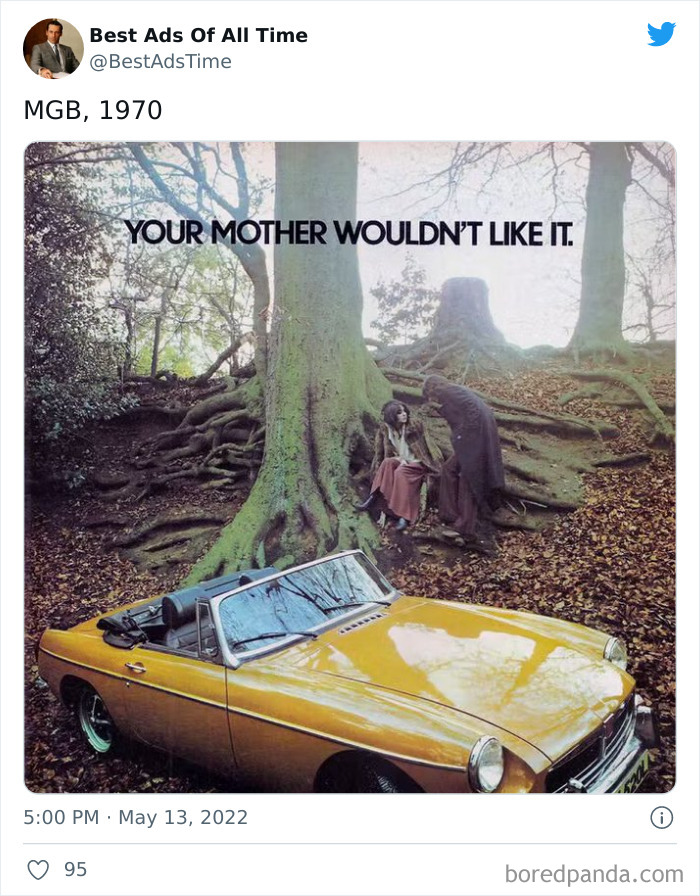
Image credits: BestAdsTime
#55
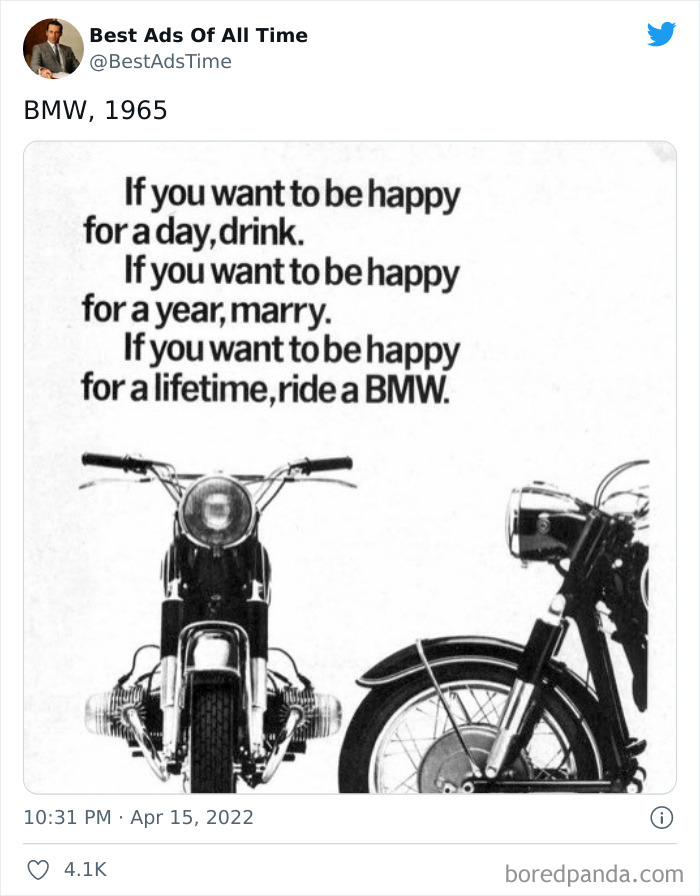
Image credits: BestAdsTime
#56
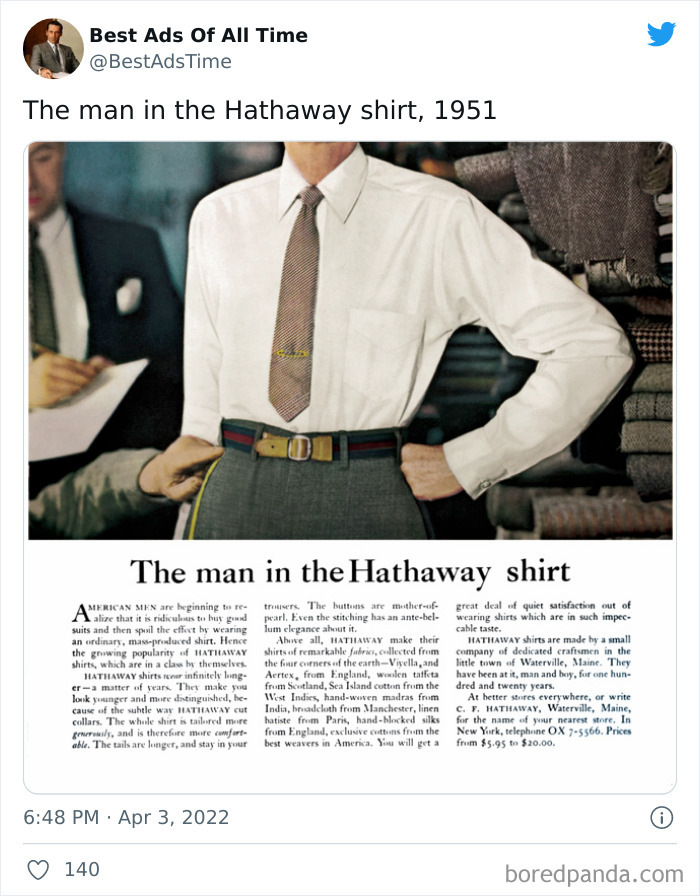
Image credits: BestAdsTime
#57
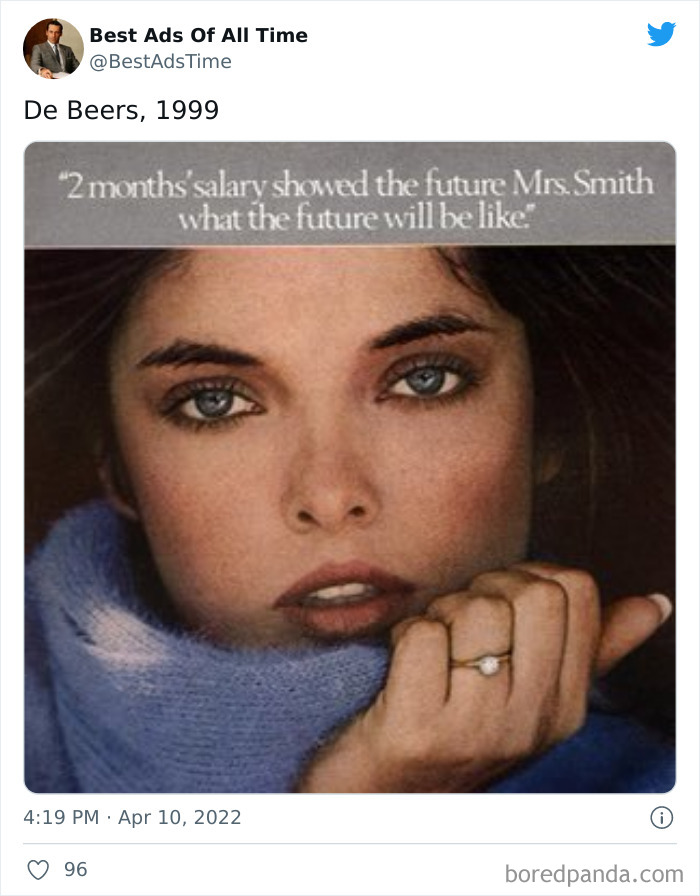
Image credits: BestAdsTime
#58
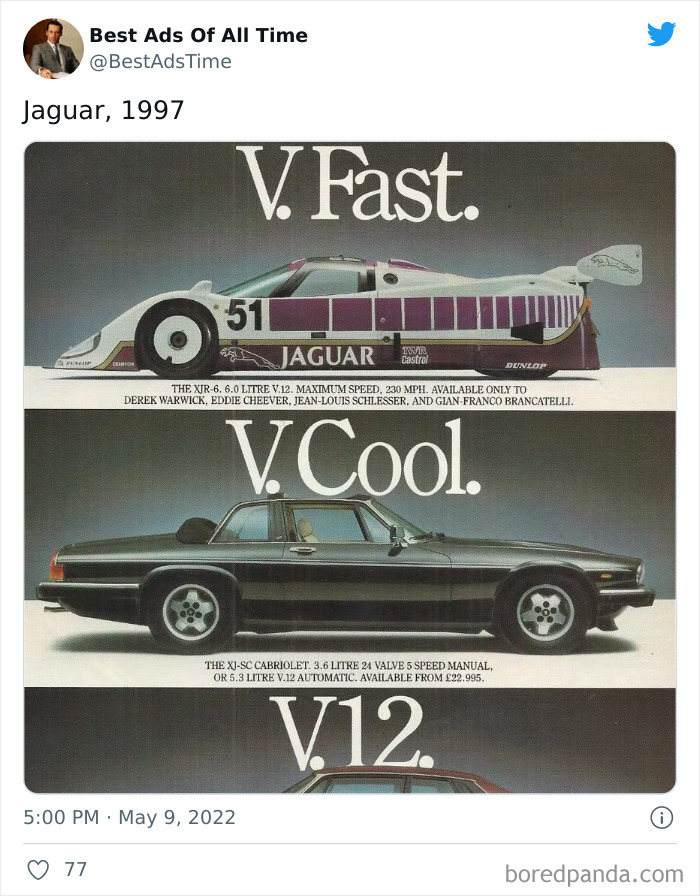
Image credits: BestAdsTime
#59
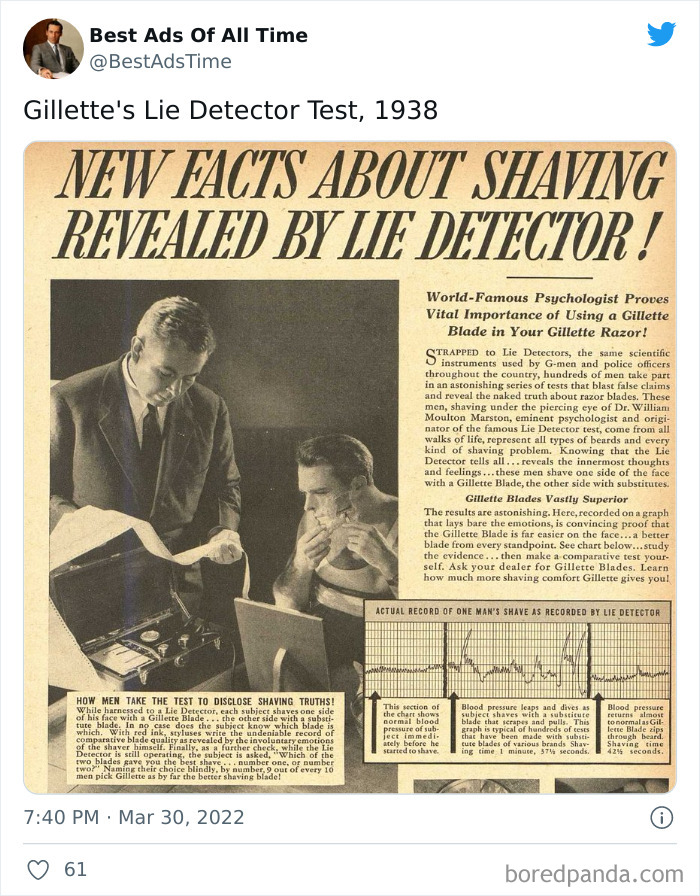
Image credits: BestAdsTime